#War of the Sixth Coalition
Text


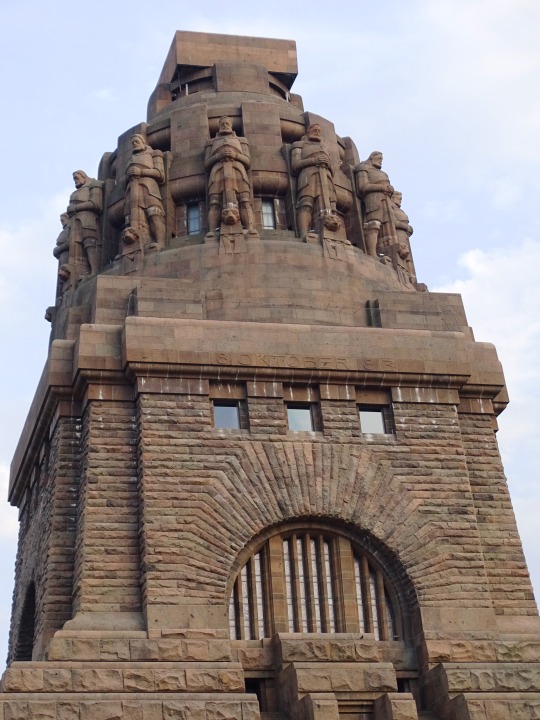

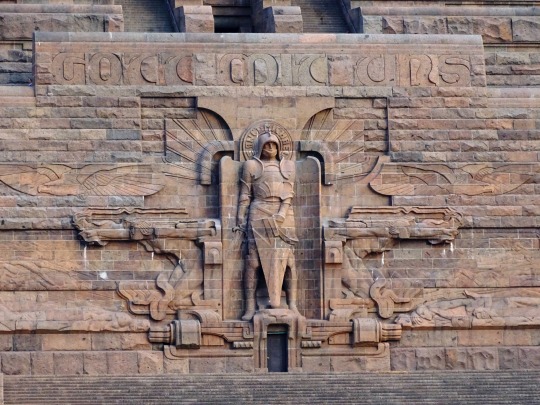
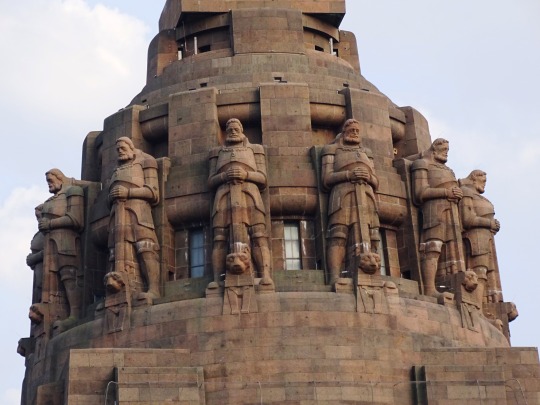
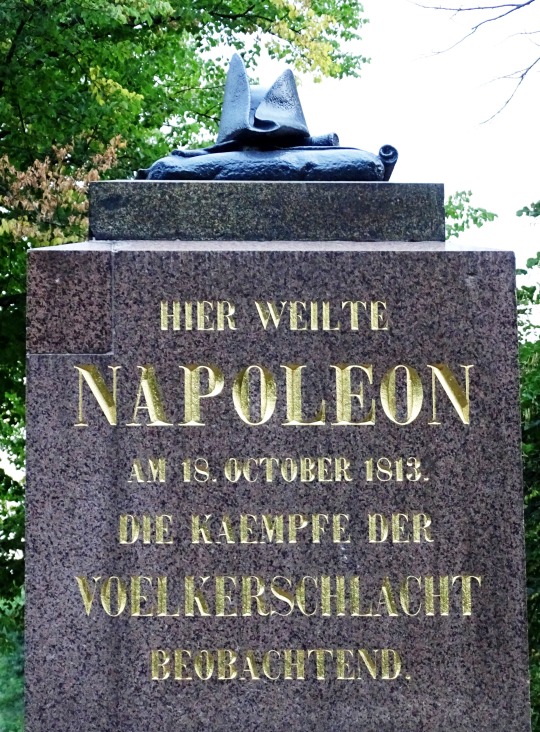



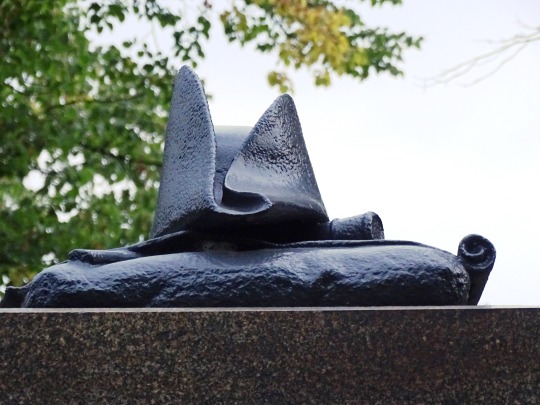




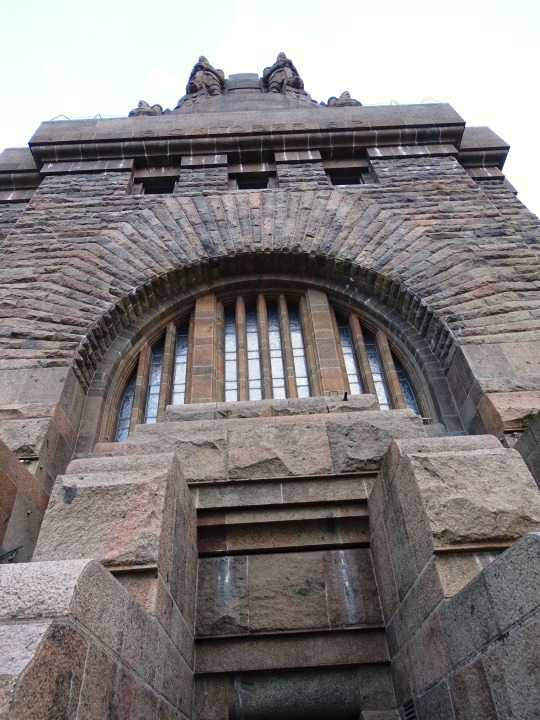




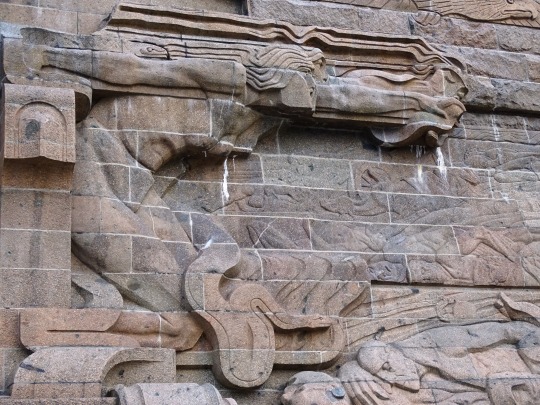
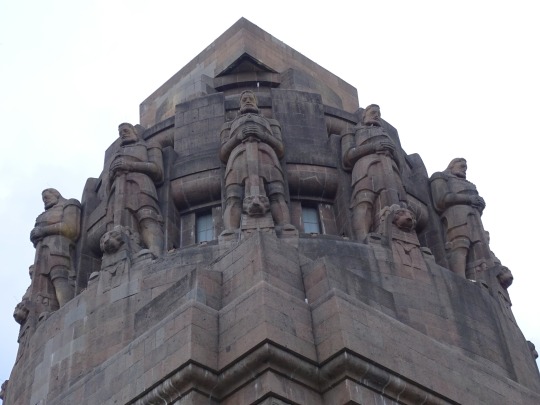
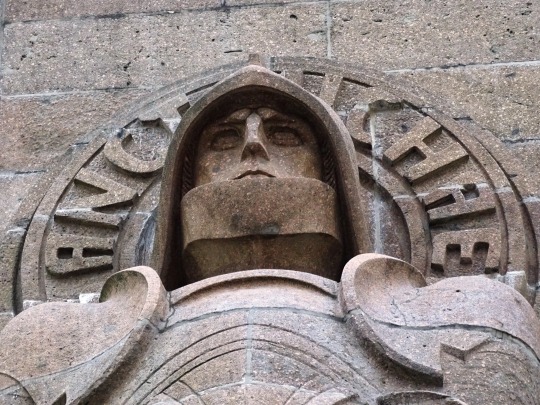

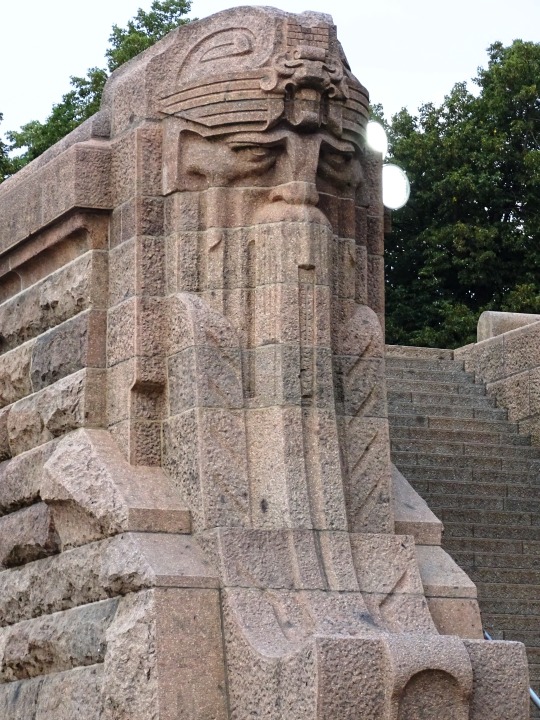
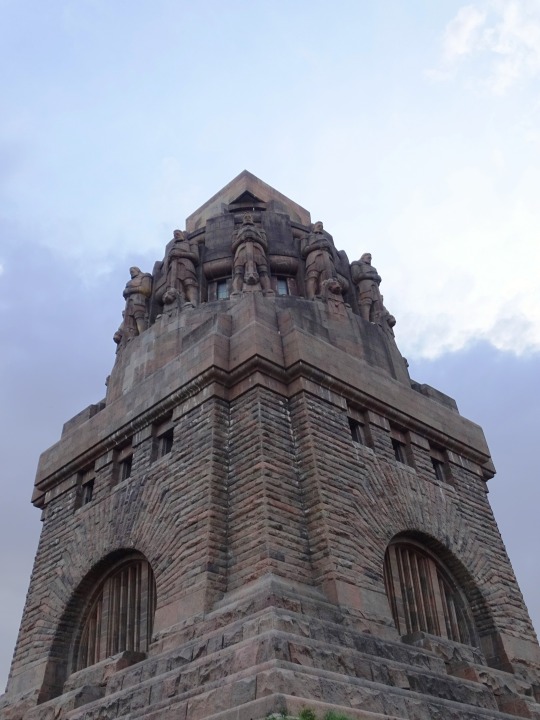


War of the Sixth Coalition: Napoleon was forced to retreat from Germany after the Battle of Leipzig on October 19, 1813.
#Napoleonstein#War of the Sixth Coalition#Napoleon#retreated#Leipzig#19 October 1813#210th anniversary#German history#Völkerschlachtdenkmal#Saxony#Sachsen#Deutschland#summer 2020#original photography#travel#vacation#cityscape#Bruno Schmitz#Monument to the Battle of the Nations#Franz Metzner#Reflecting Pool#tourist attraction#landmark
14 notes
·
View notes
Text

Head studies for ‘La Barrière de Clichy - Defense of Paris, 30 March 1814’
Horace Vernet (French, 1789-1863)
#Horace vernet#vernet#napoleonic wars#Paris#paris history#history#Parisian history#the defense of paris#napoleonic era#first french empire#19th century#art#french empire#napoleonic#napoleon#war of the 6th coalition#napoleon bonaparte#french#war of the sixth coalition#1800s#1814#1810s#empire#french art
6 notes
·
View notes
Text
Wrapped up the first in a series of books on 19th Century wars:
Stop me if you've heard this one before. The rest of Europe is overrun in a set of lightning wars by a jumped up junior officer who steamrolls a bunch of poorly led and bitterly divided bickering enemies who can barely get out of their own way. He makes, in this process, a bargain the despot of a Russian empire dividing central Europe into spheres of influence while that empire works as his ally. On June 22nd he decides to invade that empire, committing himself to a case of prevailing against it in brute force, dismissing any prospect that any local allies are desireable, let alone findable.
No, this isn't Adolf Hitler even if it is the anniversary of Bagration and Barbarossa both. It's Napoleon Bonaparte, who learned all the lessons of the failure of Charles XII of Sweden and avoided those mistakes, setting out to make all new ones. The result was six months of bloody battles, an expensive lesson in logistics, and a campaign marked by the irony that the loser at the tactical level won itself to death winning all the battles and underwent a total collapse with few to no equals in military history.
For the old Russia of the Tsars, this was the Patriotic War (hence the old Soviet name for the Axis-Soviet War as the Great Patriotic War) where the autocracy had launched a canny retreat and the superman-general Kutuzov bested the upstart. In reality it embodies more than most wars one of Patton's most truthful comments that wars are a sequence of blunders and the person who fucks up one less time than the other is the one who wins and is proclaimed a genius.
It also showcases why the old Russia was able to win wars even when its army barely functioned at a tactical level, because its enemies were monstrously arrogant and relied on deeply erroneous assumptions. None of this save the incompetent blundering, of course, applies to the Russian Army that is every bit as badly led as Kutuzov's and is wrecking itself in the Donbas, in a fashion which Napoleon I wouldn't have been surprised to see at all.
8/10.
#lightdancer comments on history#book reviews#european history#military history#napoleonic wars#war of the sixth coalition#napoleon's invasion of Russia
0 notes
Note
georges was really badly wounded during his military time, what was the injury??
Dear Anon,
Georges was indeed wounded during the first Battle of the Mincio River, also known as the Battle of Pozzolo on December 25 and 26, 1800. He was hit by three bullets and while this at first seems like grievous injuries, they really were not. La Fayette said so himself and he was not in the habit of making light of his children’s health. He wrote in a letter to his friend Joseph Masclet on February 17, 1801:
I have not this long while heard from you, my Masclet: sure I am, nevertheless, that you do not your friend, and that you have been pleased with George’s good fortune on the Mincio. He was in the wing, and under the general who fought and won the action. The eleventh regiment of hussars was the most distinguished. My son had for his share three bullets, but slight wounds. General Dupont tells me he had named him in the account of the battle. George insisted on the suppression of the mention made of him, unless the same was done in favour of his wounded comrades. His wounds would have been sooner cured, had he not remained with the regiment as long as there was something to do, which caused an inflammation and a dépôt in his arm. But when the eleventh hussars made the blockade of the forts of Verona, which put them out of the way of danger, George got into the city, where he was very well taken care of. When General Dupont saw him last he was in good train of recovery, although he yet wore a scarf. His side was still less damaged than the arm So that the danger of the battle, which has been great, being over we have had nothing to fear. and much to rejoice at. I give you those details as I know you will enjoy them. Here is a good, honourable, solid peace.
Jules Germain Cloquet, Recollections of the Private Life of General Lafayette, Baldwin and Cradock, London, 1835, pp. 229-230.
Georges had injuries to his arm and side, followed by an inflammation and swelling – nothing too pleasant but also nothing that put him in great danger. There is no mentioning of any permanent damage to his arm or upper body.
I hope I could help you and I hope you have/had a great day!
#ask me anything#anon#georges de la fayette#marquis de lafayette#la fayette#french history#napoleonic wars#sixth coalition#1800#1801#letter#joseph masclet#battle of minico#battle of pozzolo#jules germain cloquet#general dupont
17 notes
·
View notes
Text
Spent such a good day in one of the most famous and huge Russian libraries digging for some golden nuggets in terms of books on the Napoleonic era and Austrian affairs.
Feeling unbelievably calm and relieved. Haven’t experienced that in a long time. ❤️
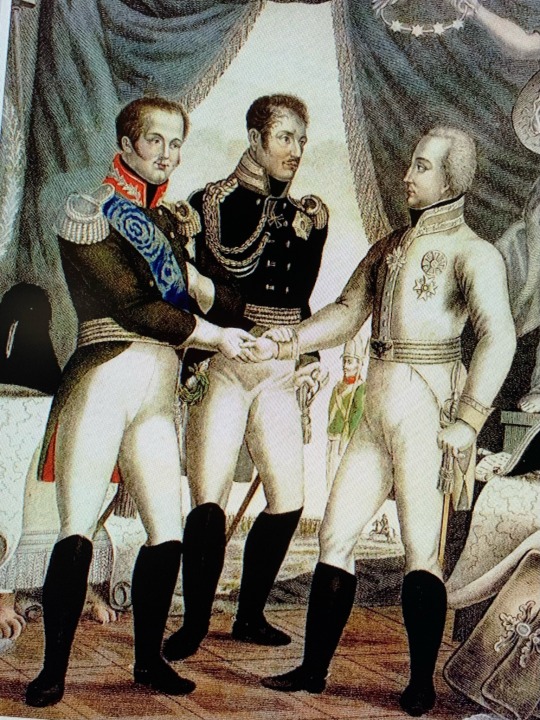
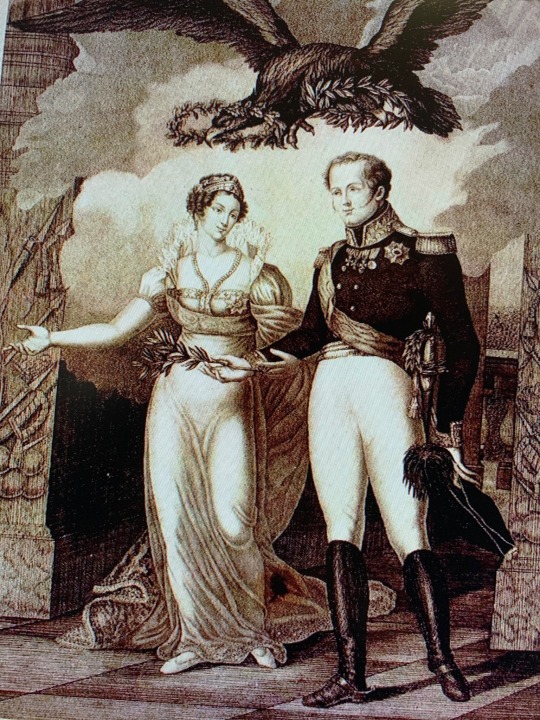
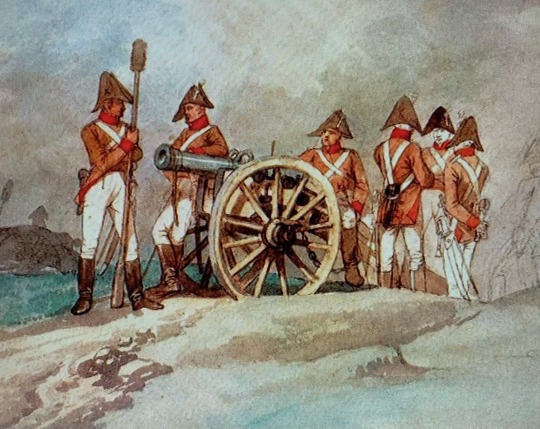
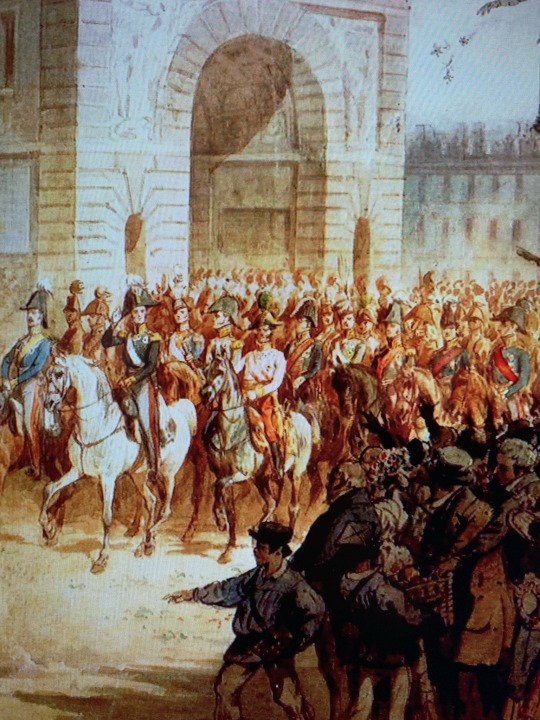
And here is a meme as usual! The temptation was too strong. X)

(Oops, simple spelling mistakes but I’m too lazy to go and fix them…)
#history meme#the war of the sixth coalition#battle of the nations#völkerschlacht#völkerschlacht bei leipzig#karl zu schwarzenberg#fürst zu schwarzenberg#tsar alexander i#friedrich wilhelm iii.#franz ii of austria#napoleonic era#napoleonic wars#austrian empire#19th century
25 notes
·
View notes
Photo

War of the Sixth Coalition
The War of the Sixth Coalition (1813-1814), known in Germany as the Wars of Liberation, was the penultimate conflict of the Napoleonic Wars (1803-1815). The Sixth Coalition, which included Russia, Austria, Prussia, the United Kingdom, Sweden, Portugal, Spain, and several German states, defeated the First French Empire and drove Napoleon into exile on the island of Elba.
Continue reading...
64 notes
·
View notes
Text
Last weekend, U.S. Secretary of State Antony Blinken visited Israel, Jordan (to meet with Arab foreign ministers), Ramallah (located in the West Bank), Iraq, and Turkey. With the war between Israel and Hamas now entering its sixth week, U.S. diplomacy has kicked into high gear. As Blinken works to secure humanitarian relief for Gazans caught in the crossfire, he has been signaling where he and the White House would like things to go once the fighting stops: a “revitalized” Palestinian Authority (PA) that would administer the West Bank and Gaza and a temporary international force to help provide security in the latter.
These ideas are probably the only ones that satisfy U.S. political, diplomatic, and geo-strategic concerns as well as those of some Arab governments. Yet they are likely to fail.
The Biden administration is embarking on a path that it studiously avoided during its first three years—and for good reason. It is now going to discover that, despite its efforts, when the war between Israel and Hamas ends, the region will look more like a version of the status quo that existed on Oct. 6 than a new Middle East.
As Blinken crisscrossed the Middle East, he seemed of the mind that this war is a paradigm-shifting event. This is a misplaced hope, however. No doubt there is a place for U.S. diplomacy in the conflict, but the secretary of state is approaching it with a set of assumptions—about the likely effects of the war on Israeli and Palestinian politics, the interests of regional actors, and Washington’s influence—that are defective.
It is not a bad assumption that Prime Minister Benjamin Netanyahu’s days are numbered. He presided over the single greatest security failure in Israel’s history, which undermined the entire logic of his long tenure as the country’s leader. Netanyahu told Israelis that he was uniquely capable of providing them with the security and normalcy that they so desperately craved. It would be an extraordinary demonstration of political skills for him to survive this crisis.
But his likely political demise does not portend the resurrection of the Israeli peace camp. Even before Hamas murdered around 1,400 Israelis on Oct. 7, the standard-bearers of the two-state solution had become marginal political actors. Israel’s left-wing Meretz party, which commanded as many as 12 (out of 120) seats in the Knesset in the mid-1990s and most recently was a member of Naftali Bennett’s anti-Netanyahu government coalition in 2021, failed to win a single mandate in the Israeli parliament in the November 2022 elections—a loss of six seats. The Labor Party—the party of Israel’s founders and builders—sits in the Knesset with a mere four seats.
Elections will not happen until after hostilities in Gaza come to an end. But it seems likely that after Hamas wrought so much death and destruction on Israel, Israelis will again rebuff those peddling a peaceful coexistence with Palestinians. A postwar government could very well end up being a Netanyahu-less center-right-right coalition.
During the second week of the war, polls showed that Benny Gantz—the former defense minister and leader of National Unity alliance—enjoyed broad political support. He is a centrist only by Israeli standards, however; he ran to Netanyahu’s right on Gaza in previous election cycles and remains coy about Palestinian statehood. All of this suggests that if Blinken and his advisors believe they can resurrect the two-state solution, then they misapprehend Israeli politics.
Central to the U.S. day-after approach is the rehabilitation of the Palestinian Authority for it to take responsibility for the Gaza Strip once again. It is not at all clear what the goal of revitalizing the PA means in practice, though. Pouring money and guns into PA President Mahmoud Abbas’s coffers has helped him build a corrupt national security state.
Perhaps Blinken intends for there to be new elections in the Palestinian territories. Yet Abbas could lose, which is why the PA has not held parliamentary elections since 2006, when his faction—Fatah—lost to Hamas.
Even if Abbas could overcome the PA’s corruption, dysfunction, and lack of legitimacy with U.S. help, it is unlikely that he would want to be the U.S.-Israeli proconsul in Gaza. After all, that is at the heart of Hamas’s critique of the Palestinian Authority: that it advances Israeli—and by extension U.S.—interests at the expense of Palestinian rights. On this, the Hamas leadership is not wrong.
Presumably, the United States will enlist the so-called international community to help the Palestinian Authority get on its feet. This is not a bad thought, but Washington needs willing partners—and no leader in Europe, Asia, the Middle East, Latin America, or Africa has raised their hand to help with either providing security in Gaza after the war or helping to reenergize the PA. It is almost certain that there will be a conference in Geneva or Istanbul, where countries will pledge billions of dollars for the reconstruction of Gaza—most of which will never arrive.
But don’t expect foreign troops to materialize to keep peace. The Europeans will resist out of fear, the Egyptians will balk because they do not want to be responsible for Gaza, and the rest of the Arab world lacks the capacity for such an important mission. One can imagine that Turkish President Recep Tayyip Erdogan might dramatically offer Turkish troops, claiming historic responsibility and Muslim solidarity, but the Israelis will never agree to Erdogan’s aggrandizement at their expense.
Let’s play a thought experiment: Suspend reality and suppose that the United States can renovate the PA, European and Arab countries step up with peacekeeping forces for Gaza, and the Israelis produce a moderate centrist coalition. This would be good news, but the bases of the conflict between Israelis and Palestinians would remain. Israelis will still not want to share Jerusalem, they won’t accept Palestinian refugees in their midst, and they will not agree to live within the boundaries set on June 4, 1967, at the end of that year’s Arab-Israeli War. For their part, the Palestinians will not give up a capital in Jerusalem, cannot forsake the refugee issue, and must have a territorially contiguous and fully sovereign state.
There is nothing about the war in Gaza that will encourage Israelis and Palestinians to alter these positions. The world always expects the two parties to walk right up to the abyss and pull back, but instead they always join hands and jump.
The appetite for destruction that has played out in Israel and Gaza over the past month reflects the fact that the underlying conflict between Israel and the Palestinians is not yet ripe for resolution. And there is little reason to believe that when the current round of fighting is over, the situation will be any more propitious for diplomacy. Hamas needs to not lose, and even if it does, it will have burnished its resistance credentials to the extent that the cost of the conflict will be worth it for the group’s leaders.
The Israelis are bloodied, but not enough for them to seek a different path. This is especially true as long as the Lebanon-based militant group Hezbollah sits on the sidelines and takes shots at Israel without triggering a full-scale war.
In addition, Israel’s relations with Arab states remain mostly intact. The Jordanians have recalled their ambassador and told the Israelis not to send one back to Amman until after the fighting has stopped, but King Abdallah has not severed relations. The lower house of the Bahraini parliament issued a statement suspending relations that did not actually suspend relations. The head of the foreign affairs and defense committee of the United Arab Emirates’ Federal National Council said: “From the United Arab Emirates perspective, the Abraham Accords are there to stay.” Saudi Arabian Minister of Defense Khalid bin Salman, who also happens to be the crown prince’s brother, reportedly indicated in Washington last week that the kingdom remains interested in normalization with Israel.
Breaking ties or putting potential ties on ice might get Israel’s attention, but Arab leaders don’t seem willing to take that step.
Taken together, all of this suggests that after all the death and destruction, and all of Blinken’s shuttling, the Israeli-Palestinian conflict will end up no closer—or, more likely, even farther away—from a settlement than before Oct. 7. The only difference will be whatever security regime Israel devises for the Gaza Strip—a territory that Hamas cannot be allowed to continue governing, but which no international power is willing to take responsibility of.
It is true that the Israel-Hamas war seems cataclysmic, but it is not a paradigm-shifting event like Egyptian-Israeli peace, the end of the Cold War, or the terrorist attacks of Sept. 11, 2001. It is a local conflict—the stakes of which have been magnified many times because of passionate partisans on both sides, far away from the bloodshed.
It will remain as it was before: unresolvable, no matter how much mileage Blinken clocks between Washington and Middle Eastern capitals.
44 notes
·
View notes
Text
The kernel of [Otto] Neurath’s philosophical system was the rejection of “pseudorationality” — the belief that any single metric, like money, could guide all decisions within any system, economic or otherwise.
Capitalism is an inherently irrational system because the pursuit of profit to the exclusion of all other considerations leads to disaster, such as the climate crisis and the sixth mass extinction. Notably, Neurath extended this insight to socialist economics and argued that an alternative system based on a universal equivalent (labor time, for example) would also lack the necessary conscious control that could rationally and democratically weigh tradeoffs between the incommensurate ethical, social, environmental and aesthetic considerations that comprise any decision. Neurath reasoned that socialism could not be based on market mechanisms, so he criticized the desire of fellow socialists to maintain the “uncontrollable monetary order and at the same time to want to socialize” as “an inner contradiction.”
...
Neurath employed his insights from ancient Egyptian economics to study war economics during the Balkan Wars (1912-13) and World War I. He came to see in natura calculation as the solution to the problem of pseudorationality. After all, he argued, there were no “war units” to guide a battleship commander’s decisions. What mattered were incommensurate things: “the course of the ship, the power of the engines, the range of the guns, the stores of ammunition, the torpedoes and the food supplies.” In an emergency, prices fail to convey any information at all.
Twenty years later after Neurath theorized the possibilities of in natura socialism, [Leonid] Kantorovich’s linear programming offered what was perhaps the first practical method to actually implement it. Rather than reducing everything to a universal equivalent (like price), Kantorovich could balance competing restrictions in their natural units — tons of steel or watts of electricity — across many different projects simultaneously.
While not sufficient to organize something as complex as an economy, linear programming marked a conceptual breakthrough in planning theory. It offered a systematic way to allocate resources and thus optimize selected metrics of national well-being. That is, as soon as a planner could articulate the material constraints of an economy using mathematical language, plans of production and distribution could naturally follow without the aid of the market’s invisible hand. Even with the primitive computers available in the 1940s, Kantorovich could dream of “programming the USSR.”
In many ways, Kantorovich embodied the optimism of the “thaw” period after Stalin when rapid economic growth, the new universal science of “cybernetics” and the space age seemed to herald the coming of an abundant and humane socialism. Yet, despite these promising conditions, linear programming failed for two reasons: After the Prague Spring of 1968, anything that smacked of “market socialism” (a tradition that Kantorovich only tangentially belonged to) was compromised, leaving reformers little chance of revitalizing the USSR’s increasingly decrepit planning apparatus. And second, the lack of democracy in the Soviet Union meant that it was impossible to assemble a new political coalition strong enough to overcome the vested interests of economic planners and managers, who enforced the Communist Party’s five-year plans.
...
Neurath made clear that conscious control is a planned economy’s greatest strength compared to capitalism, but it requires democracy to prevent authoritarian and inefficient supervision over the production and distribution of goods. ...
Drew Pendergrass and Troy Vettese, Planning An Eco-Socialist Utopia
222 notes
·
View notes
Text
Across Maryland at farmers’ markets, mosques, and through phone calls, dozens of activists are encouraging opponents of Israel’s assault on Gaza, which has resulted in over 33,000 Palestinian deaths, to vote for “Uncommitted” in the state’s May 14 primary election.
Hena Zuberi, a leader of the Listen to Maryland coalition which is spearheading the movement, told the Baltimore Beat, “By selecting ‘uncommitted’ on the ballot, we are protesting to inform President Biden that we do not support his funding of war and genocide,” said the Howard County resident and mother of four.
The “Uncommitted” movement in Maryland views voting as a key tactic to push for a ceasefire. It is supported by Jewish Voice for Peace Action (the 501(c)(4) sister organization of Jewish Voice for Peace), chapters of the Democratic Socialists of America, and others.
There’s no apparent end in sight to the conflict that’s entered its sixth month. It has destroyed much of Gaza’s civilian infrastructure and internally displaced hundreds of thousands of Gazans.
As Biden has won resounding victories in the primaries, over half a million people, or about one in ten Democrats, have chosen “uncommitted,” “uninstructed,” or “no preference” in primaries across states like Michigan, Wisconsin, Pennsylvania, and Connecticut (as of April 5). Supporters argue this is the reason some Democrats — such as former House Speaker Nancy Pelosi and some senators — who had previously opposed ceasefire have recently changed their position.
#us politics#biden administration#palestine#israel#joe biden#vote uncommitted#2024 presidential election#democrat primary#us primaries#primary elections#maryland#may 14
4 notes
·
View notes
Text
1809-Battle of Wagram
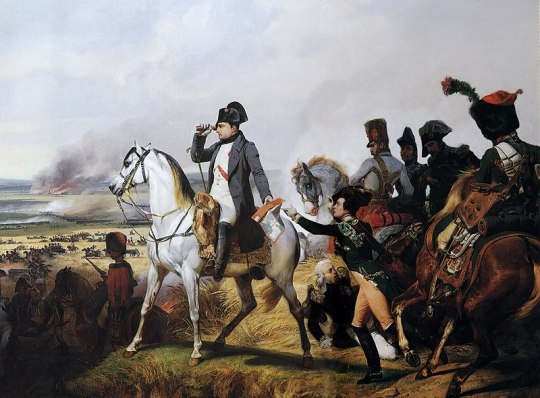
France defeats the Austrian army in the largest battle to date of the Napoleonic Wars.
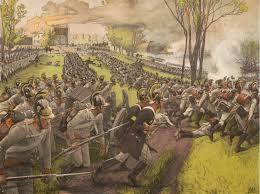
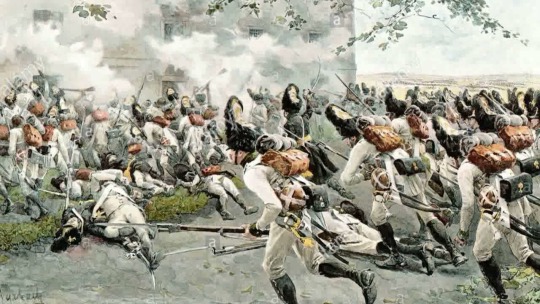
The Battle of Wagram ([ˈvaɡram]; 5–6 July 1809) was a military engagement of the Napoleonic Wars that ended in a costly but decisive victory for EmperorNapoleon's French and allied army against the Austrian army under the command of Archduke Charles of Austria-Teschen. The battle led to the breakup of the Fifth Coalition, the Austrian and British-led alliance against France. Wagram was the largest battle in European history up to its time.
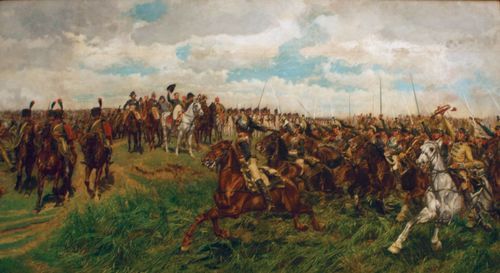
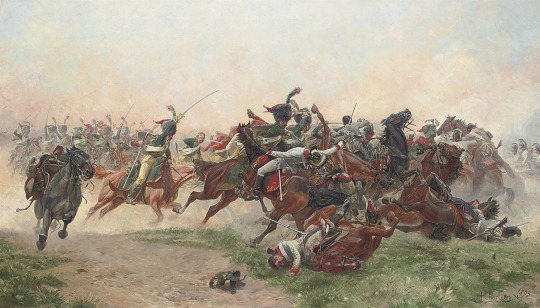
With 74,000 casualties, the two-day battle of Wagram was particularly bloody, mainly due to the use of 1,000 artillery pieces and the expenditure of 200,000 rounds of artillery ammunition on a flat battlefield packed with some 300,000 men. Although Napoleon was the uncontested winner, he failed to secure an overwhelming victory and the Austrian casualties were only slightly greater than those of the French and allies. Nonetheless, the defeat was serious enough to shatter the morale of the Austrians, who could no longer find the will to continue the struggle. The resulting Treaty of Schönbrunn meant the loss of one sixth of the Austrian Empire's subjects, along with some territories, rendering it landlocked until the German Campaign of 1813.
12 notes
·
View notes
Text
The Battle of the Berezina on 29 November 1812 by Peter von Hess

The Battle of (the) Berezina (or Beresina) took place from 26 to 29 November 1812, between Napoleon's Grande Armée and the Imperial Russian Army under Field Marshal Wittgenstein and Admiral Chichagov. Napoleon was retreating back toward Poland in chaos after the aborted occupation of Moscow and trying to cross the Berezina River at Borisov. The outcome of the battle was inconclusive as, despite heavy losses, Napoleon managed to cross the river and continue his retreat with the surviving remnants of his army.
The immediate result of the Battle of Berezina had been simple: the French retreat went on, the Russian Army followed. Although it had been a Russian tactical victory by definition as the losses of the "defeated" outweighed those of the "victor", the victorious Russian force failed to meet its original objectives. Indeed, despite enormous losses, Napoleon was in a position to claim a strategic victory, having snatched what was left of his army from a seemingly unavoidable catastrophe. There would be no large military confrontation for the rest of the retreat, although the incessant harassment of Russian Cossacks and the weather continued to take a toll on the surviving members of the French army.
The losses had been extraordinary. It is estimated that 20–30,000 French combatants became casualties. "To the number of the slain in action must be added probably as many as 30,000 non-combatants." The Guard, which had not come into action at all, lost about 1,500 men out of 3,500. Much, however, had been saved. Napoleon, his generals, 200 guns, the war chest, much of the baggage, and thousands of officers and veteran soldiers had escaped. Overall, approximately 40,000 members of Napoleon's army were saved. Without this core of experienced men, Napoleon could not have rebuilt his armies for the battles of the War of the Sixth Coalition.
According to author Andrew Zamoyski: The next two days were, according to some, among the worst of the entire retreat[...]no fallen horse or cattle remained uneaten, no dog, no cat, no carrion, nor indeed, the corpses of those who died of cold and hunger.
Napoleon left his army on 5 December at Vilna. The temperatures dropped to -33.75 °C on 8 December and the number of combatants was down to 4,300. On 14 December the rest of the French main army crossed the Niemen. 36,000 French prisoners of the Grande Armée were taken by the Cossacks between 1–14 December. The only troops that had remained were the flanking forces (43,000 under Schwarzenberg, 23,000 under Macdonald), about 1,000 men of the Guard and about 40,000 stragglers. No more than 110,000 were all that was left from 612,000 (including reinforcements) that had entered Russia. The Russian losses may be about 250,000 men. Louise Fusil, a French actress, who was living in Russia for six years, returned with the army and offers details in her memoires. In French historiography, Berezina is later associated with disaster.
Sources. French invasion of Russia, The Battle of the Berezina, from Wikipedia, the free encyclopedia
youtube
#Отечественная война 1812 года#War of 1812#Художник#Начинающий художник#famous artists#Эрмитаж#Hermitage Museum#Russian Empire#Российская империя#История России#Наполеон#Napoleon Bonaparte#Наполеоновские войны#Михаил Кутузов#Mikhail Kutuzov#Peter von Hess#theintexp#Youtube
4 notes
·
View notes
Photo
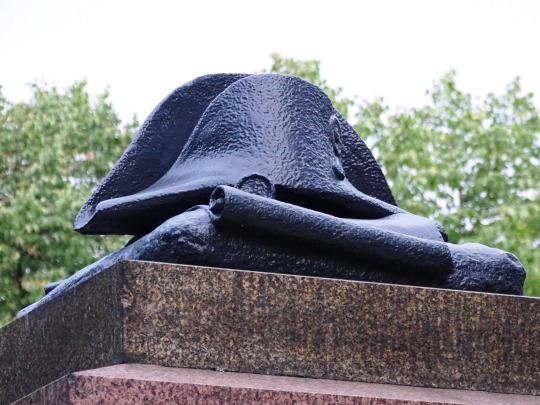

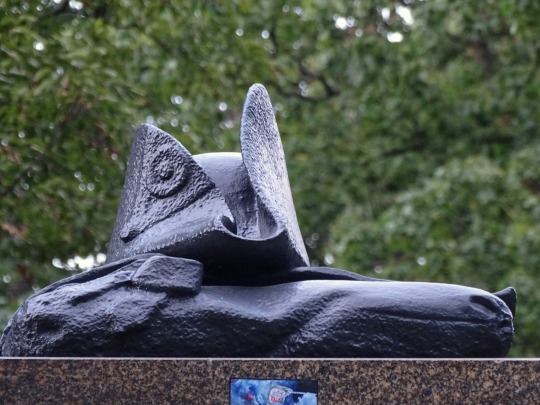

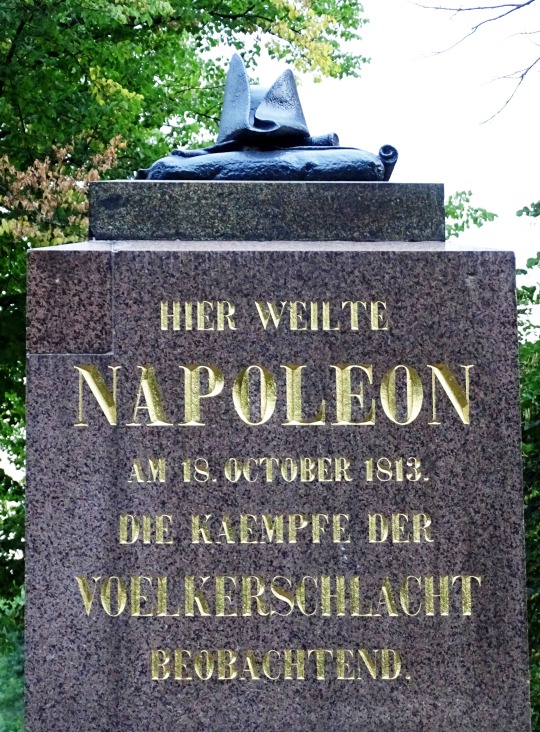

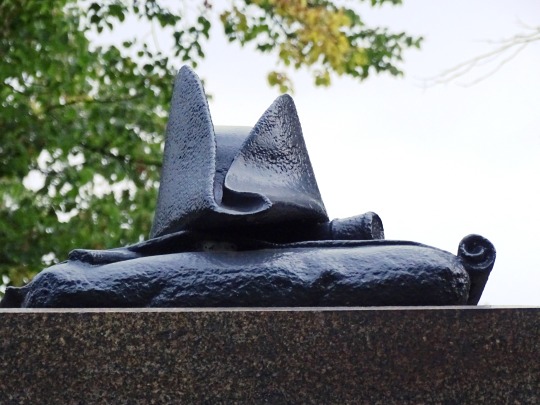

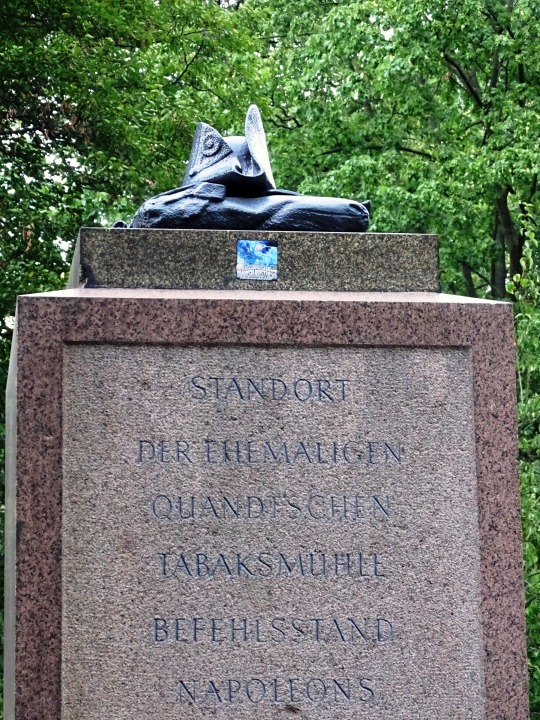

War of the Sixth Coalition: Napoleon was forced to retreat from Germany after the Battle of Leipzig on October 19, 1813.
#Napoleonstein#War of the Sixth Coalition#Napoleon#retreated#Leipzig#19 October 1813#anniversary#German history#Völkerschlachtdenkmal#Saxony#Sachsen#Deutschland#summer 2020#original photography#travel#vacation#cityscape#Bruno Schmitz#Monument to the Battle of the Nations#Franz Metzner#Reflecting Pool#tourist attraction#landmark
2 notes
·
View notes
Text
The U.N. said last month that 1,100 Palestinians had been displaced by settler violence in the last year, an unprecedented figure. Over just the last few days, around 200 to 300 Palestinians have been displaced in Wadi Seeq and other areas, the consortium said — often by settlers who are armed.
“They’re leaving now because they feel completely unprotected. They’re so scared of those settlers who have come in and threatened them,” said Allegra Pacheco, who heads the consortium.
Most of the attacks come from settler outposts established without government authorization but protected by the Israeli army. Over 500,000 Jewish settlers live in nearly 150 settlements across the West Bank, which is home to some 2.5 million Palestinians. The international community overwhelmingly views settlements as illegal and a major obstacle to peace. Israel captured the West Bank, along with Gaza and east Jerusalem, in the 1967 war. The Palestinians want the territories for their future state.
...
Wadi Seeq is the sixth Bedouin village to have pulled up stakes in the last year in response to an uptick in settler attacks. Many more are in danger of being completely displaced, according to the West Bank Protection Consortium, a coalition of aid groups and donor countries, including the European Union, that support Palestinian communities.
...
On Friday, a video showed a settler with an assault rifle walking into the village of Al-Tuwani in the southern West Bank and shooting a Palestinian point blank.
Two days earlier, settlers shot dead three Palestinians in the village of Qusra, near the northern West Bank city of Nablus. On Thursday, settlers attacked their funeral, killing another two men, according to the Palestinian Health Ministry. Video footage showed the settlers swerving their cars into the funeral procession before stopping and opening fire.
...
More at the link.
6 notes
·
View notes
Text
A “Liga dos Homens Justos” (que Karl Marx participou) teve influência da Maçonaria; Rothschilds; Palestina; Marx Satanista; Moses Hess Maçom; Albert Einstein; Carta secreta de Levy Baruch e o Plano dos Banqueiros; Bakunin; Comunista Flourence: “Nosso inimigo é Deus. O ódio a Deus é o princípio da sabedoria” (“Filosofia do Comunismo”, Charles Boyer, Fordham University Press, N. York, 1952).
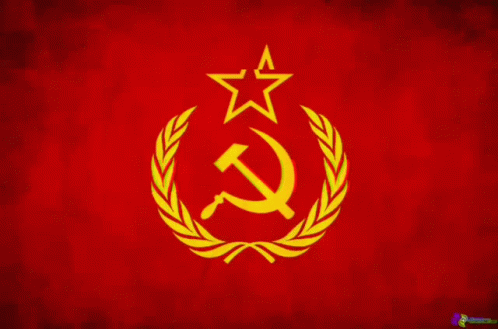
League Of Just Men (globalsecurity.org)
But as Paris remained the decisive battleground, the League was at that time actually not much more than the German branch of the French secret societies.
[…]
The League of Just Men participated in the Blanquist uprising of May 1839 in Paris. prominent members of the League of the Just: the type-setter Karl Schapper, the watchmaker Joseph Moll and others, connected with the Blanquist secret Société des Saisons which organised the Paris uprising of May 12, 1839. Schapper and Moll took part in the uprising, were prosecuted by the French authorities and compelled to leave for England, where they headed local branches of the League. Engels made their acquaintance in the spring of 1843 in London, as he wrote later in his article "On the History of the Communist League".
The League of Just Men moved to London where they founded a front group, the Educational Society for German Working-men, in 1840. While Weitling moved to Switzerland, Bauer and Schapper escaped to London. It became an international organization, which Karl Marx, Friedrich Engels and Johann Eccarius later joined.
The emigrant workers of other nationalities also participated in the League's activities. The internationalisation of the League and the evolution of its members' views under the influence of the ideas of Marx and Engels led to its reorganisation into the Communist League in 1847.
In their infamous 1976 book None Dare Call It Conspiracy, Gary Allen and Larry Abraham claim that Karl Marx was approached by the Illuminati - calling themselves The League Of Just Men (Bund der Gerechten) - who commissioned him to write his Communist Manifesto. The League of Just Men was said to be simply an extension of the Illuminati, which was forced to go deep underground after it was exposed by a raid in 1786 conducted by the Bavarian authorities.
Criador da Liga dos Homens justos (Venedey) era Maçom
Jacob Venedey - Wikipedia
Venedey was admitted to the Masonic Lodge of St Jean de Jerusalem in Nancy in 1833. In 1837 he delivered the eulogy at the grave of his Masonic brother Ludwig Börne in Paris.
O Pai de Karl Marx era Maçom
The Politics of Sociability: Freemasonry and German Civil Society, 1840-1918 - Stefan-Ludwig Hoffmann - Michigan Press (página 313)
Between 1806 and 1813 the Grand Orient de France also founded branch or daughter lodges in the German-speaking region that accepted Jewish members. These included the "l'Etoile anséatique" lodge founded in 1812—13 in Osnabrück, of which Karl Marx's father Heinrich was a member
Bloodlines_ Introduction.doc (cia.gov)
The book is an excellent synopsis of what Satan had planned in 1952 and has carried out since to a large degree. The Rothschilds (and other top Satanic families in a lesser way) financed a jewish Mason and devote Satanist named Karl Marx to write his Das Kapital . The Satanists controlling key Masonic groups (along with some other groups they controlled) got Communism started. The original idea came from Satan, and was given at a Feast of the Beast in meticulous detail to those highest in the Satanic Hierarchy . Albert Pike, and Guiseppe Mazzini were two men in strategic positions of control that were let in on the plans.
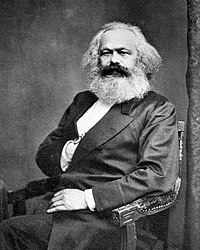

Marx com a mão oculta
Historians Confirm Karl Marx Was Employed By The Rothschilds (thepeoplesvoice.tv)
During the Napoleonic War of the Sixth Coalition, [Marx’s father] Hirschel Mordechai became a Freemason in 1813, joining their Loge L’Ètoile anséatique (The Hanseatic Star) in Osnabrück. After the war, he feigned conversion to Lutheranism as a means to better infiltrate Prussian society. He pretended to be an “assimilated” bourgeois Enlightenment liberal, interested in “free thought” and was wealthy, owning some Moselle vineyards.
One of Marx’s grandparents was Nanette Salomon Barent-Cohen, who belonged to a wealthy Amsterdam family. Her cousin had married Nathan Mayer Rothschild and bore Lionel Nathan Rothschild, “Baron” and Member of Parliament for the City of London.
[…]
Critics have suggested that Marx’s mission was to co opt the nascent socialist movement. Before Marx ever wrote a word, following the industrial revolution, the socialist movement already existed in Germany, France, Britain and elsewhere. Marxists have tried to monopolize socialism and insist that unless you follow Marx’s theories, you cannot be a socialist. This is a clear fraud and usurpation.
A major question in this regard, is “who was behind Marx?” The book Der preußische Regierungsagent Karl Marx by Wolfgang Waldner, suggests that initially Marx worked as a police spy for the Prussian regime.
Waldner mentions the fact that Marx married Jenny von Westphalen in 1843. She came from a wealthy Prussian family. Her brother was Ferdinand von Westphalen, who was Prussian Minister of the Interior from 1850-1858. Ferdinand, Marx’s brother-in-law, was regarded as “reactionary”, who ran a vast spy network which kept tabs on dissidents…
Marx moved to London in 1849…While Marx was authoring Das Kapital in the British Museum reading room, his famous cousin Lionel de Rothschild, conveniently, was MP for the City of London (1847-1868 & 1869-1874).
The Rothschilds (Marx’s third cousin by blood) and other finance syndicates were very prominent in promoting “Jewish emancipation” and Masonic, liberal and Protestant ideas which took hold of society at the start of the 19th century….
The idea of Marx as a Rothschild shill…was raised as a concern by his contemporary rival in the First International, Mikhail Bakunin in 1869, who was not even aware of the fact that Marx and Rothschild were cousins. Bakunin wrote presciently:
“This world is now, at least for the most part, at the disposal of Marx on the one hand, and of Rothschild on the other. This may seem strange. What can there be in common between socialism and a leading bank? The point is that authoritarian socialism, Marxist communism, demands a strong centralisation of the state. And where there is centralization of the state, there must necessarily be a central bank, and where such a bank exists, speculating with the Labour of the people, will be found. “
—Mikhail Bakunin, Profession de foi d’un démocrate socialiste russe précédé d’une étude sur les juifs allemands, 1869.
Henry Makow - Illuminati I - O Culto Que Sequestrou o Mundo - Portugues | PDF | Judeus | Maçonaria (scribd.com)
Uma expressão extrema é encontrada em uma famosa carta de Levy Baruch de Karl Marx citado em "Revisão de Paris", 01 de junho de 1928. Ele também mostra como o socialismo e o comunismo eram apenas dispositivos para usurpar o poder e propriedade. 21 "O povo judeu em seu conjunto será o seu próprio Messias. Seu reinado sobre o Universo será obtido através da unificação das raças humanas e através da eliminação das fronteiras. A República Universal venham a ser constituídos em que os Filhos de Israel se tornará o direcionando elemento. Sabemos como dominar as massas. Os governos de todas as nações serão gradualmente cair, através da vitória do proletariado, nas mãos de Judá. Toda a propriedade privada será a posse dos príncipes de Israel, eles próprios a riqueza de todas as terras. Assim se realizará a promessa do Talmud que quando o tempo do Messias vem os judeus se mantenha sob suas chaves a propriedade de todos os povos do mundo.
Moses Hess, guru de Marx, era Maçom
Who Was Moses Hess? Originally Published January 15-16, 2021. - Beth Shalom (bethshalompgh.org)
In 1863 Hess served briefly as delegate from Cologne for the newly founded Allgemeiner Deutscher Arbeiterverein (a political party), in Leipzig, before returning to Paris where he contributed studious works to the Archives Israélites de France. He also contributed as a Freemason to Le Monde Maçonnique, a broad history of Freemasonry.
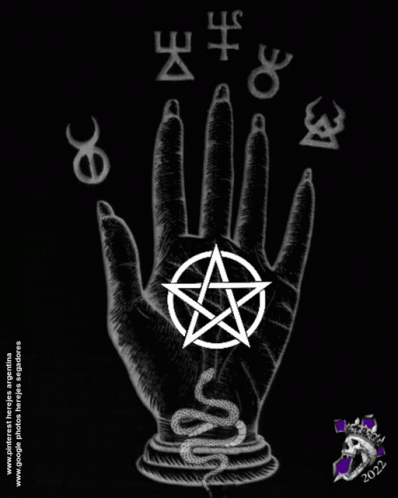

Page:EB1911 - Volume 02.djvu/875 - Wikisource, the free online library
Flourens declares “Our enemy is God. Hatred of God is the beginning of wisdom.
Karl Marx, preferido dos ateus e revolucionários, era satanista confesso (Parte 2) - Artigo Gospel Colunas (gospelmais.com.br)
A afirmação é o autor do livro “Era Karl Marx Um Satanista?”. Essencial afirmar, enfaticamente, que Marx e seus colegas, enquanto anti-Deus, não eram ateus, como os marxistas atuais descrevem a si próprios. Isto é, enquanto denunciavam e ultrajavam abertamente a Deus, odiavam um Deus em quem acreditavam. Sua existência não é posta em dúvida; Sua supremacia, sim.
“Quando a revolução comunista irrompeu em Paris em 1871, o Camarada Flourence declarou: ‘Nosso inimigo é Deus. O ódio a Deus é o princípio da sabedoria’” (“Filosofia do Comunismo”, Charles Boyer, Fordham University Press, N. York, 1952).
Marx elogiava muito os “camaradas” que proclamavam abertamente este propósito.
“Com desdém lançarei meu desafio Bem na face do mundo, E verei o colapso desse pigmeu gigante, cuja queda não extinguirá meu ardor. Então vagarei semelhante a um deus, vitorioso, pelas ruínas do mundo, e, dando às minhas palavras uma força dinâmica, sentir-me-ei igual ao Criador.” (Marx antes do Marxismo, tradução de D. McLellan, MacMillan)
Marx adotou o satanismo após uma luta interior. Os poemas foram terminados em um período de grave enfermidade, o resultado dessa tempestade em seu coração. Nessa época ele escreve sobre seu “desgosto em ter de fazer um ídolo de uma teoria que detesta. Ele está doente”. (idem)
Maldição familiar de Karl Marx
O motivo dominante da conversão de Marx ao comunismo aparece claramente em uma carta de seu amigo George Jung para Ruge. Não é a emancipação do proletariado, nem o estabelecimento de uma melhor ordem social. Jung escreve: “Se Marx, Bruno Bauer e Feuerbach se unissem para fundar uma revisão político-teológica, Deus faria bem em cercar-se de todos os Seus anjos e abandonar-se à autocomiseração, pois estes três certamente iriam expulsá-lo do céu…” (Citação de MacLellan, ver acima). Todos os satanistas ativos destruíram vidas. O mesmo sucedeu com Marx.
Família de Karl Marx
K. Marx – “Um Psicograma” (Europa-Verlag, Zurich, 1966), conta-nos o tipo de vida de Marx que levou ao suicídio duas filhas e um genro. Três crianças morreram de subnutrição. Sua filha Laura, casada com o socialista Laforgue, também sepultou três de seus filhos. Em seguida, ela e o marido suicidaram-se. Outra filha, Eleanor, decidiu fazer o mesmo, junto com o marido. Ela morreu. Ele voltou atrás no último minuto. As famílias dos satanistas estão sob maldição. Mais tarde teve um filho com a empregada e colocou o nome de Engels, que igualmente era cristão no começo de sua vida, e deixou de ser quando se envolveu com comunismo, sua desconversão ao cristianismo foi dolorosa.
[…]
“Eu produzo devastação”. Era este o propósito supremo da vida de Hess? É também o de Lúcifer.
Engels estava plenamente consciente do perigo satanista.
Em seu livro “Schelling, o Filósofo em Cristo”, Engels escreveu:
Karl Marx e seu amigo pessoal Engels
“Desde a terrível Revolução Francesa, um espírito inteiramente novo e demoníaco entrou em grande parte da humanidade, e o ateísmo levanta sua audaciosa cabeça de um modo tão desavergonhado e insidioso que poder-se-ia pensar que as profecias das Escrituras estão agora cumpridas. Vejamos primeiramente o que as Escrituras dizem quanto ao ateísmo dos últimos tempos. O Senhor Jesus diz em Mat. 24: 1 l a 13: ‘Levantar-se-ão muitos falsos profetas, e enganarão a muitos. E, por se multiplicar a iniquidade, o amor se esfriará em quase todos. Aquele, porém, que perseverar até o fim, esse será salvo. E será pregado este evangelho do reino por todo o mundo para testemunho a todas as nações. Então virá o fim’ E no versículo 24: ‘Porque surgirão falsos cristos e falsos profetas operando grandes sinais e prodígios para enganar, se possível, os próprios eleitos.’ E São Paulo diz, em II Tess. 2:3: ‘Será revelado o homem da iniquidade, o filho da perdição, o qual se opõe e se levanta contra tudo o que se chama Deus, ou objeto de culto… (o aparecimento do iníquo) é segundo a eficácia de Satanás, com todo o poder, e sinais e prodígios da mentira, e com todo o engano de injustiça aos que perecem, porque não acolheram o amor da verdade para serem salvos. É por este motivo, pois, que Deus lhes manda a operação do erro, para darem crédito à mentira; a fim de serem julgados todos quantos não deram crédito à verdade; antes, pelo contrário, deleitaram-se com a injustiça.’“
E assim por diante, Engels cita escritura após escritura, tal como o mais convicto dos teólogos teria feito. Ele continua: “Não temos mais indiferença ou frieza em relação ao Senhor. Não, é uma inimizade aberta, declarada, e no lugar de todas as seitas e partidos temos agora apenas dois: cristãos e anticristãos… Vemos os falsos profetas entre nós… Eles circulam pela Alemanha, e querem introduzir-se em toda parte; divulgam seus ensinos satânicos nas praças e carregam a bandeira do diabo de uma cidade para outra, seduzindo a pobre juventude, a fim de lançá-la no mais profundo abismo de inferno e morte.” Ele termina o seu livro com as palavras do Apocalipse:
“Venho sem demora. Conserva o que tens, para que ninguém tome a tua coroa. Amém.” (Marx-Engels, 1ª edição Crítico – histórica completa, ver Citação anterior)
O homem que escreveu tais poemas e advertências contra o satanismo, o homem que orou com lágrimas para guardar-se desse perigo, o homem que reconheceu que Marx era possuído de mil demônios, torna-se o maior colaborador de Marx na luta demoníaca “para abolir toda religião e todos os costumes”. (“O Manifesto Comunista”, de Marx e Engels). A teologia liberal (BAUER) fez isso. Ela compartilha com Marx e Engels a culpa pelos milhares de inocentes mortos pelo comunismo.
O Comunista Marx não era ateu, era satanista. Ele fazia preleções sobre assuntos como “Perversidade de Deus” (exatamente como agem os adeptos de Satã). Ao contrário dos ateístas, eles não negam a existência de Deus, a não ser para enganar a outros; eles sabem de Sua existência, porém descrevem-no como perverso.
Outra ligação importante para confirmar a ligação de Karl Marx com o satanismo é a relação do marxismo e a teosofia, que não é acidental. A teosofia divulgou no Ocidente a doutrina indiana da não existência de uma alma individual. O que a teosofia realiza através da persuasão o marxismo realiza através do poder do chicote. Despersonaliza os homens, transformando-os em robôs submissos ao Estado.
No Manifesto Comunista, Marx expressou seu desejo de abolir todas as religiões, o que se supõe incluiria também a eliminação do culto satanista. Contudo, sua esposa refere-se a ele como sumo sacerdote e bispo. De qual religião? A única religião europeia que tem sumos sacerdotes é a satanista. Que cartas pastorais teria escrito ele, um homem tido por ateísta? Onde estão essas cartas? Há uma parte da vida de Marx que não foi pesquisada. Alguns biógrafos de Marx poderiam ter certa intuição quanto ao relacionamento entre a adoração ao diabo e o assunto tratado em seus livros. Não possuindo, porém, o necessário discernimento espiritual, não podiam entender os fatos que tinham ante os olhos. Contudo, o testemunho deles é interessante. O marxista Franz Mehring escreveu em seu livro “Karl Marx” (G. Allen; Unwin Ltd., Londres, 1936): “Embora o pai de Karl Marx tenha falecido alguns dias após o vigésimo aniversário de seu filho, ele parece ter observado, com secreta apreensão, o demônio em seu filho predileto… Fleury. Marx não imaginou, e nem poderia ter imaginado, que o rico cabedal de cultura burguesa que ele transmitira a seu filho Karl, como uma valiosa herança para a vida, contribuiria apenas para libertar o demônio que ele temia”.
As Origens Satânicas do Comunismo
Usina de Letras
Quem inventou o comunismo? Karl Marx e Fiedrich Engels? Engano! Esta é uma mentira que todos repetem. Marx e Engels foram apenas os lançadores do comunismo, em 1848, com o famoso manifesto, escrito por Marx, baseado em um rascunho de Engels.
O comunismo nasceu antes disso. Seu verdadeiro inventor foi o quase desconhecido Moses Hess, guru tanto de Marx quanto de Engels, que os converteu, separadamente, ao novo ‘credo’.
Moses Hess (nome real: Moritz Hess, um judeu apóstata, 1812/1875), ficou conhecido como o primeiro dentre os 'jovens hegelianos' a admitir ser um comunista. Ele representava em Paris, de 1842 a 1843, o jornal radical Rheinische Zeitung (Gazeta do Reno), quando conheceu Karl Marx e, depois, Friedrich Engels. Após serem doutrinados por Hess, Marx e Engels se conheceram em Paris e, após muitos entendimentos, lançaram o Manifesto Comunista.
Segundo o pastor romeno Richard Wurmbrand, prisioneiro dos comunistas por quatorze anos, autor de vários livros, Moses Hess, antes de proclamar-se comunista, praticava ritos satânicos, particularmente a Missa Negra (vide 'Marx & Satan', Living Sacrifice Book Co;1986, ISBN: 0891073795).
Existem várias versões da Missa Negra, entretanto, todas são praticadas por marginais que não se integraram na sociedade ocidental e que a praticam como uma manifestação de sua rejeição aos princípios da civilização ocidental.
[…]
Torna-se evidente que Marx e Engles, ambos graduados em satanismo, após longas lucubrações diabólicas, chegaram a uma versão light do culto ao demônio, sob o fraudulento nome de 'COMUNISMO', capaz de confundir e atrair milhões de pessoas, inclusive intelectuais de nomeada. Bernard Shaw, Sartre, Saramago, Hobsbawm, Niemeyer, etc., caíram no conto do 'comunismo' e, todos, se transformaram em sacerdotes do satanismo, dentro da safada política vermelha de cooptar inocentes úteis. No Brasil, comunistas entre a burritzia brasileira, incluindo as universidades, são legiões.
Conforme bem definiu o Pastor Wurmbrand, 'O COMUNISMO NÃO PASSA DE UMA FACHADA PARA O SATANISMO', tornada palatável com uma série de baboseiras criadas por Marx, como 'luta de classes', 'mais valia', 'materialismo histórico', 'ditadura do proletariado', 'justiça social', 'estado final de perfeito comunismo' e outra idiotices contidas num códice sinistro conhecido como “materialismo dialético”.
Na prática, como autêntico regime satânico, que adora o mal e não o bem, o comunismo representou o regime mais cruel e retrógrado de toda a história da humanidade, responsável pela tortura e morte de quase duzentos milhões de pessoas no século passado, além de um retumbante fracasso sócio-financeiro e de destruição do ambiente em dezenas de nações**. O comuno-satanismo foi a maior desgraça que se abateu sobre a humanidade em todos os tempos, embora, para enganar os trouxas, ele só fala de 'paz', de 'justiça social' e outras mentiras.**
No Brasil, agora em poder da esquerda, ou seja, dos adoradores do mal, pelo menos desde a fraudulenta constituição de 88, a criminalidade tem crescido exponencialmente, pois não existe 'vontade política' para combatê-la, devido à inversão dos valores.
[…]
Seus heróis são os maiores e mais cruéis assassinos da história: Lênin, Stálin, Mao Tsé-tung, Guevara, Pol Pot, Fidel Castro, Hitler, Mussolini, todos tendo em comum algum tipo de ‘socialismo’.
[…]
Estas manifestações demonstram como o comunismo/satanismo é uma patologia mental gravíssima. Comunistas perdem toda a sensibilidade para com o sofrimento alheio, a ponto de Stálin ter declarado que a morte de milhões de pessoas não passou de mera estatística. Todo comunista é um 'serial killer' em potencial e os mais famosos foram ou ainda são campeões da carnificina.
[…]
Sob os auspícios do Ministério da Educação, o satanismo há muito chegou às salas de aula. O ensino dos valores judaico-cristãos foi substituído pelo marxismo, um disfarce para o satanismo. Os grandes heróis nacionais, tais como o grande Duque de Caxias, são esquecidos, e bandidos como Lamarca, Marighela, Prestes, Olga Benário, Guevara, Fidel Castro, são exaltados.
Os marginais dos anos sessenta, que tinham por objetivo entregar o Brasil ao Império do Mal, a União Soviética, além de implantar a mais cruel ditadura e dizimar patriotas, cometeram assaltos, seqüestros, assassinatos, torturas, propaganda maciça enganosa e, em vez de serem submetidos à corte marcial, por traição à Pátria, estão ocupando altos cargos na nomenklatura petista e recebendo, por seus crimes, recompensas que já se aproximam dos dois bilhões de reais. Alguns chegaram até a ser nomeados ministros... Inclusive da Justiça!
Karl Marx, preferido dos ateus e revolucionários, era satanista confesso (Parte 3) - Artigo Gospel Colunas (gospelmais.com.br)
Marx morreu em desespero, como todos os satanistas. Em 25 de maio de 1883 ele escreveu a Engels: “Como a vida é insípida e vazia, mas como é desejável!”
O segredo do Comunismo
Existe um segredo por detrás do marxismo que apenas alguns poucos marxistas sabem. Lenine escreveu: “Após meio século, nem sequer um dos marxistas compreendeu Marx.” (Citado em Hegel, por W. Kaufmann, Doubleday, 1965, pg18).
[…]
Em uma carta de 1921 (vol. XXXVI, p.572), Lenine escreve: “Todos nós merecemos ser enforcados numa corda suja. E eu não perdi as esperanças de que isso se realize, desde que somos incapazes de condenar esta suja burocracia. Se isso acontecer, será bem feito.”
Esta foi a última esperança de Lenine, após toda uma vida de lutas pela causa comunista: ser merecidamente enforcado em uma corda suja. Essa esperança não foi realizada em sua vida, mas quase todos os que trabalharam com ele foram finalmente executados por Stálin, após terem confessado publicamente haver servido outros poderes que não o proletariado que simularam socorrer.
[…]
Por que o sacerdote da Igreja Ortodoxa Romena Roman Braga, prisioneiro dos comunistas na época (seu endereço atual é o “Bispado Ortodoxo Romeno”, Jacksonville, Michigan, USA), teve seus dentes arrancados um a um com uma barra de ferro, para fazê-lo blasfemar?
Os comunistas explicaram a ele e a outros: “Se nós os matarmos, vocês, cristãos, irão para o céu. Porém não desejamos que sejam coroados mártires. Vocês devem primeiro amaldiçoar a Deus e então ir para o inferno”.
[…]
‘A luta contra Deus para arrebatar seus crentes’ é a única explicação lógica da luta comunista contra o batismo. Na Albânia, o sacerdote Stephen Kurti foi condenado à morte por haver batizado uma criança. Batismos devem ser feitos em segredo na China Vermelha ou na Coréia do Norte.
“Os Kolhozniks (trabalhadores das fazendas coletivas) não têm carteiras de identidade e, portanto, só podem batizar seus filhos secretamente” (Igor Shafarevitch, “A Legislação sobre Religião na URSS”, Seuil, França, 1973).
[…]
O jornal soviético Sovietskaia Molodioj, de 14/2/1976, acrescenta a nova e irrefutável prova das ligações entre o marxismo e o satanismo. O jornal russo descreve como os comunistas militantes, sob o regime czarista, tumultuavam as igrejas e zombavam de Deus. Para este fim, os comunistas usavam uma versão blasfema do “Pai Nosso”: “Pai nosso, que estás em Petersburgo (o nome antigo de Leningrado); Amaldiçoado seja o teu nome, Possa o teu reino despedaçar-se, Possa a tua vontade não ser feita, Sim, nem mesmo no inferno. Dá-nos o pão que nos roubaste, E paga nossas dívidas, assim como pagamos as tuas até agora, Não nos deixes cair em tentação Mas livra-nos do mal – a polícia de Plehve (o Primeiro Ministro czarista) E põe um fim neste maldito governo. mas, como tu és fraco e pobre de espírito, poder e autoridade, Fora contigo por toda a eternidade. Amém.”
O objetivo principal do comunismo em conquistar novos países não é estabelecer novo sistema social ou econômico, e sim zombar de Deus e louvar a Satanás.
“Os vapores infernais elevam-se e enchem o cérebro, Até que eu enlouqueça e meu coração seja totalmente mudado. Vê esta espada? O príncipe das trevas vendeu-a para mim.” (Marx)
Jews and Freemasons in Europe 1723-1939 : Katz, Jacob, 1904- : Free Download, Borrow, and Streaming : Internet Archive
The House of Rothschild
Money's Prophets, 1798-1848
The House of Rothschild (nytimes.com)
Thanks largely to Mayer Amschel, the Rothschilds had become one of the eleven richest families in the Judengasse by 1800. It was at around the same time that he began to rent a large four-roomed warehouse outside the Judengasse. He also took on a talented and multilingual accountant from Bingen named Seligmann Geisenheimer.
Facebook
Jacob Katz, "Jews and Freemasonry in Europe," Harvard Press, 1970, states that the German Freemasons originated in the Order of the Asiatica, of which the wealthy banker Daniel Itzig was head. Itzig was also the backer of Weishaupt. In 1811, the Frankfurt lodge of free masons was formed by Sigismund Geisenheimer (Geisenheimer was the head clerk of the House of Rothschild) and Rabbi Zvi Hirsch, chief Rabbi of Frankfurt. Hirsch later led in the Reform Judaism movement which formulated the political Zionist program. The Frankfurt lodge listed among its members all of the leading bankers of Frankfurt, the Rothschilds, the Adlers, the Speyers, the Hanuers, and the Goldschmidts; they later held joint meetings with the Sanhedrin of Paris. Duke Carl von Hessen of Schleswig then became the head of the German masons. As Landgrave, he administered the province of Schleswig for its absentee owners, the Danish monarchy. His principal emissary was a mysterious "Johnston," variously said to be a Jew named Leicht, Leucht, or Becker. He was arrested while on a mission for the Masonic movement, and he died while held prisoner in the Castle of Wartburg.
[…]
From its inception, the alliance of the Illuminati and the Freemasons had a clearly defined program: (1) abolition of all ordered government; (2) abolition of private property; (3) abolition of inheritance; (4) abolition of patriotism (5) abolition of all religions; (6) abolition of family, morality, and control of education of children; (7) creation of a world government. This program may seem familiar to the reader; it has been encountered as the working instructions for every revolutionary movement in the world since 1782; Communism, liberation movements, resistance fighters, all obtain their program from this basic plan. It also states the goals of secular humanism in its attack on the family and the plan to control the education of children. Because messages were constantly being carried to and fro from the various chapters of the Illuminati, these instructions were seized from captured couriers and became known to European governments. Even then, no action was taken, possibly because of accomplices in high places. Also, there was an important stumbling block to convincing the threatened populations of the menace of the Illuminati revolutionists.
[…]
The first Communist International was composed of Lionel de Rothschilds, Heinrich Heine, and Karl Marx. Weishaupt had died in 1830, at the age of 82; he was succeeded as head of the Illuminati by Guiseppe Mazzini, the Italian revolutionary leader. Under Mazzini's leadership, the Illuminati moved rapidly toward a policy of more direct action, of revolutionary outbreaks and open attempts to seize and overthrow governments. The Communist International was the first step in this program of activism. At first it was simply known as The League of the Just, a branch of the Illuminati. This group commissioned Karl Marx to write the Communist Manifesto in 1847; it was published in 1848 and was immediately given worldwide circulation by the international offices of Freemasonry.
The initial program of Political Zionism was first broached by Rabbi Hirsch Kalisher, a close associate of Mayer Amschel Rothschild in Frankfurt. Sir Moses Montefiore and Adolphe Cremieux, founder of the Alliance Israelite Universelle, gave added impetus to the new movement. Its goals were greatly publicized by the work of Moses Hess, a close friend of Karl Marx. This is ironic, in view of the fact that the present Soviet Government professes to be ideologically opposed to Zionism. Moses Hess became known as "the father of Zionism." A journalist who was greatly influenced by his writings, Theodor Herzl, was converted to activism, and he is now known as "the founder of the Zionist State." The Encyclopaedia Judaica says that Moses Hess was a Jewish Socialist and nationalist who led the Reform Movement, calling for the colonization of Palestine. His principal work, "Rome and Jerusalem," which received wide circulation, was the book which had great impact on Theodor Herzl.
In 1860, Rabbi Kalisher hosted a secret meeting at his home in Thoru to recap the lessons which had been learned from the Revolution of 1848. This revolution had been intended to topple all the governments of Europe and replace them with Communist governments. It succeeded in only a few isolated instances, such as Venice, where Daniel Manini set up a Communist government. From the Thoru meeting came Kalisher's book, "Drishal Zion," in 1861, and later, Moses Hess' "Rome and Jerusalem." These two works were largely responsible for converting the Jews of Europe to the Zionist program, the political goal of restoring Palestine to the Jewish people. - From "Curse Of Canaan" by Eustace Mullins.
Sionismo, Rothschilds, o Projeto na Palestina e Albert Einstein - Moses Hess (Maçom Sionista e Guru de Karl Marx) foi um dos principais Sionistas


Moses Hess - Wikipedia
He is considered a pioneer of Labor Zionism
Moses Hess (jewishvirtuallibrary.org)
Hess died in Paris on April 6, 1875. Although he was buried at his request in the Jewish cemetery in Cologne, his remains were transferred to Israel in 1961 where they were buried in the Kinneret cemetery alongside other Socialist-Zionists such as Nahum Syrkin, Ber Borochov, and Berl Katznelson.
Mysterious Links between Socialism, Zionism and Satanism by Andre Garcia (traditioninaction.org)
The relationship between Marx and his teacher, the Jewish writer Moses Hess, also considered the father of Socialist Zionism, was quite mysterious. In Hess’ mentality and philosophy there is a curious superposition of three ideological layers: Socialism, Zionism and Satanism. On the one hand, Hess was the mentor of both Marx and Engels and one of the founders of Socialism; on the other hand, he was the precursor of Zionism, even before Theodor Herzl. He was also the one who initiated Marx and Engels into Satanism.
Labor Zionism - Wikipedia
Labor Zionists played a leading role in the 1947–1949 Palestine War, and had a dominant presence among the leadership of the Israel Defense Forces for decades after the independence of the State of Israel during the 1948 Arab–Israeli War.
Labor Zionism was one of the most mainstream forms of Zionism prior and following the establishment of the state of Israel. Labor Zionism was responsible for the creation of institutions in Israel that exist today, such as the Israel Defense Forces (IDF). The predecessors of the IDF began as underground militia groups to protect Jews during the Second Aliyah in 1904.[1] A majority of the immigrants at the time were influenced by socialist ideals, because of the Marxist ideologies spreading throughout Russia. Additionally, the First Aliyah was met by backlash because of the **Rothschild’s** family’s funding of the settlements.
[…]
Moses Hess's 1862 work Rome and Jerusalem: The Last National Question argued for the Jews to settle in Palestine as a means of settling the national question. Hess proposed a socialist state in which the Jews would become agrarianized through a process of "redemption of the soil" that would transform the Jewish community into a true nation in that Jews would occupy the productive layers of society rather than being an intermediary non-productive merchant class, which is how he perceived European Jews.[citation needed]
[…]
Albert Einstein was a prominent supporter of both Labor Zionism and efforts to encourage Jewish–Arab cooperation.[8] Fred Jerome in his Einstein on Israel and Zionism: His Provocative Ideas About the Middle East argues that Einstein was a Cultural Zionist who supported the idea of a Jewish homeland but opposed the establishment of a Jewish state in Palestine "with borders, an army, and a measure of temporal power." Instead, he preferred a bi-national state with "continuously functioning, mixed, administrative, economic, and social organizations.”
[…]
Labor Zionism manifests itself today in both adult and youth organizations. Among adults, the World Labor Zionist Movement, based in Jerusalem, has affiliates in countries around the world, such as Ameinu in the United States and Australia, Associação Moshé Sharett in Brazil and the Jewish Labour Movement in the United Kingdom.
Moses Hess as a Prophet of Spiritual Zionism: The Origins of Messianic Jewish Humanism
Moses Hess as a Prophet of Spiritual Zionism: The Origins of Messianic Jewish Humanism | Modern Judaism - A Journal of Jewish Ideas and Experience | Oxford Academic (oup.com)
In his book on Biblical criticism and political theory, Tractatus Theologico-Politicus, Spinoza expressed with absolute confidence that the Jewish nation would establish again its state, and God would choose it anew. The meaning of Spinoza is clear: with the renewal of its national independence, the Jewish nation would again become a chosen nation, a guide for the world.
Kalischer, Ẓevi Hirsch | Encyclopedia.com
As early as his meeting with Amschel *Rothschild in 1836, Kalischer revealed his opinion that the redemption of Israel would not come, as had been believed for generations, through a miracle, that "suddenly God would come down from the heavens or suddenly send His messiah," but rather that salvation would be brought about by human endeavor.
[…]
Indeed, he wrote to Rothschild detailing the halakhic issues involved in renewing the practice of sacrifice on the Temple Mount.
Rabbi Tsevi Hirsch Kalischer from Toruń – Proactive Messianist - New Eastern Europe
The Ottoman loss of Palestine to Muhammed Ali also influenced the imagination of rabbi Kalischer, who closely followed events in the Near East from Toruń. He viewed the pasha’s victory as a sign that he was living in times ripe with messianic promise. This is why the key argument in his letter to Amschel Rothschild (1836), the hugely wealthy Jew from Germany, was that the change of rule in Eretz Yisrael heralded a messianic era and would make it possible for Rothschild, as God’s vessel, to purchase the land.
He took a similar view of the Rothschilds’ family fortune and the stature of Moses Montefiore, the patron of the Jewish community in England and Jerusalem, with whom Kalischer exchanged letters in this spirit. The Toruń rabbi believed that these people, who had the ear of the powerful non-Jews of the world, should hearken to Biblical models in their actions – in particular, that of Mordechai vis-à-vis the king of Persia in The Book of Esther. Furthermore, Kalischer believed that a moment was approaching similar to the one described in the books of Ezra and Nehemiah, when Judaism and Temple worship were to be restored, just as was done after the release from Babylonian captivity. Kalischer even envisaged the return of sacrifices in the Temple.
[…]
In Derishat Tsiyon Tsevi Hirsch Kalischer argued for the Jewish colonisation of Palestine and the creation of a Judaism-centred polity*.* He saw the project as inspired by Biblical prophecies that foretold the redemption. Nonetheless, the sage from Toruń expected no miracle, believing that realisation of the dream rested with national resourcefulness. He believed that the Jewish people was obliged by God to actively search for Zion. As rabbi Kalischer himself explained it in Derishat Tsiyon:
[…]
Owing to these and other efforts, the Jewish settlement of Mikveh Israel was created near Jaffa in 1870. A farming school was set up here for the young pioneers. In 1898, Theodor Herzl (during what would be his only trip to Palestine) met here with the German Kaiser Wilhelm II, who was then open to the Zionist initiative.
[…]
The Toruń rabbi was the first to promote the idea of Jewish settlement in Palestine, and did so a whopping sixty years before The Jewish State (1896), and nearly a quarter century before the birth of Theodor Herzl (1860), otherwise considered the creator of modern Zionism.
[…]
As mentioned, Kalischer corresponded with Rothschild and Moses Montefiore.
[…]
Derishat Zion was also quoted by Moses Hess, a friend of Karl Marx, who included a three-page quotation from Derishat Tsiyon in his own Zionist work Rome and Jerusalem (1862).
gang_da_ervilha: Karl Marx era primo em 3º grau de Rothschild (gangdaervilha.blogspot.com)
Marx vinha de uma longa descendência de rabinos judeus. Ele vivia na miséria em Londres, na Dean Street. Frequentava o Red Lion Pub no Great Windmill Street, em Soho, onde juntamente com Friedrich Engels foram solicitados para redigir o que viria a ser o Manifesto Comunista. Sua obra mais conhecida é o livro Das Kapital, que esquece de mencionar que o dinheiro é imprimido ex-nihilo pelos seus próprios primos, os Rothschild.
[…]
A descoberta de Marx como cúmplice de Rothschild foi revelada pelo seu rival contemporâneo da Primeira Internacional, Mikhaïl Bakounine em 1869. Este último nem sequer estava ao corrente que Marx e Rothschild eram primos. Bakounine escreveu com uma certa intuição o seguinte:
"Este mundo é actualmente, na sua maior parte, á disposição de Marx por um lado, e de Rothschild por outro lado. Isto pode parecer estranho. Que poderia haver em comum entre o socialismo e um banco de primeiro plano ? A razão é que o socialismo é autoritário, o Comunismo de Marx exige uma forte centralização do Estado. E onde se produza uma centralização do Estado, deve haver necessariamente um banco central, e logo que tal banco exista, nós encontramos obrigatoriamente por trás a nação judia parasita, a especular sobre o trabalho do Povo." Mikhaïl Bakounine. Profissão de fé de um democrata socialista russo, precedido de um estudo sobre os alemães judeus, 1869.
The Satanic Rothschild Dynasty - Financial Wizzards and Wealthy Cults - Psicanálise (passeidireto.com)
Lionel de Rothschild (the de was added by the french Rothschilds was involved with the first communist internationale. The Mason Mazzini who helped start communism praised Rothschild , “Rothschild could be King of France if he so desired”
New World Order University ForumThe Jews Around Weishaupt - New World Order University Forum
“The same year of the Wilhelmsbad congress, according to author (William) Still, ‘the headquarters of Illuminized Freemasonry was moved to Frankfurt, the stronghold of German finance, and controlled by the Rothschilds.’ He added, ‘For the first time, Jews were admitted into the Order. Previously, Jews had only been admitted to a division of the Order called “the small and constant Sanhedrin of Europe.”
“Jacob Katz, in his Jews and Freemasonry in Europe, wrote that founders of the Frankfurt Lodge of Freemasonry included Frankfurt rabbi Zvi Hirsch, Rothschild chief clerk Sigismund Geisenheimer, and all of Frankfurt’s leading bankers, including the Rothschilds, who would later fund Cecil Rhodes and his societies.
[…]
“Even the fact that the Illuminati headquarters in Ingolstadt were later converted into a synagogue was symbolic of this conspiracy. Lazar stated that all these Jews became the agents of revolution because they had “revolutionary souls”. There were four especially important Jews in the Illuminati leadership: Hartwig (Naphtali Herz) Wessely, Moses Mendelssohn, the banker Daniel von Itzig (1723-1799) and the businessman David Friedlander.” (La Vieille France, 31st of March, 1921.)
[…]
“In his book History of the French Revolution (1848) Louis Blanc wrote that “The project of Jean Adam Weishaupt, founder of the Order of the Illuminati, together with five Jews, Weseley, Moses Mendelsohn and the bankers Itzig, Friedlander and Myer, was by the sole attraction of mystery, by the sole power of association, to subject to the same will, to animate with the same breath thousands of men in every country in the world, to make new beings of these men by means of slow gradual education, to render them, even to the point of frenzy or death, obedient to invisible and unknown chiefs: with such a legion to secretly … surround sovereigns, unbeknown to direct governments, and to lead Europe to that point where . . . all monarchies are brought down, all privileges of birth declared unjust, the right of property abolished . . . such was the gigantic plan of the founders of Illuminism.”
[…]
“Jewish Illuminism was called Haskalah, and was headed and directed by Moses Mendelssohn, who also inspired the leaders of Masonic Illuminism such as Adam Weishaupt, H. S. Reimarus, Lessing, Nicolai, Ch. Dohm, Mirabeau, and others. The Jew, Bernard Lazare, has himself written “There were Jews behind Weishaupt.”
(L’antisÈmitisme,” page 339)
[…]
“Illuminism represented the efforts of the heads of the powerful Jewish Kahal which has ever striven for the attainment of political, financial, economic and moral world dominion. The movement had been founded in 1776 by Adam Weishaupt. Bernard Lazare, himself a Jew, has written that “There were Jews behind Weishaupt,” and upon a close study of Illuminism, we find that the destructive forces which culminated in the French Revolution were of three kinds; financial, intellectual and anti-Christian.
In the first class, we come upon the names of Jewish Financiers such as: Daniel Itzig, Friedlander, Ceerfbeer, Benjamin and Abraham Goldsmid, Moses Mocatta, Veitel Heine Ephraim. In the second category, we find Moses Mendelssohn, Naphtali Wessely, Moses Herseim, who are the inspirers of Balessing, Frederick Nicolai, Weishaupt, Mirabeau, l’Abbe Gregoire, the Duke of Brunswick-Wolfenbuttel and Anacharsis Clootz.
Lastly, the third class is composed mostly of the group known as the Encyclopedists: d’Alembert, Diderot, Rousseau, Voltaire and all of the Cabalists practicing magic and among whom we find: Martinez Depasqualy, Leucht, the enigmatic Count of Saint German, Flake and Joseph Balsamo surnamed Cagliostro.”
Criação de Israel: Como foi fundação e origem das tensões (uol.com.br)
Milionários judeus - como a célebre família Rothschild - doaram dinheiro para se comprarem terras dos proprietários árabes da região…
Boulevard Rothschild - O que ver em Rothschild e localização (tudosobretelaviv.com)
Além de ser uma das avenidas mais disputadas de Tel Aviv, o Boulevard Rothschild é o centro financeiro da cidade, onde se concentram as sedes das entidades financeiras mais importantes do mundo.
Baron Edmond de Rothschild & Palestine
The Family ‹ Philanthropy :: The Rothschild Archive
Edmond's work in Palestine
A strong supporter of Zionism, his most outstanding achievements were involved in responding to the threats facing the Jewish people in Europe in the late 19th century by supporting massive land purchases and underwriting Jewish settlements in Palestine and Israel. Edmond's large donations lent significant support to the movement during its early years, which helped lead to the establishment of the State of Israel. In the 1880s, in his goal for the establishment of a Jewish homeland, Edmond’s philanthropy funded Jewish settlements and encouraged the development of agriculture and industry.
KARL MARX (1818–1883) – Socialista ou Satanista?
KARL MARX (1818–1883) – Socialista ou Satanista? | Jesus - o Verbo de Deus (wordpress.com)
“Invocação de Alguém em Desespero”?
“Assim um deus tirou de mim tudo. Na maldição e suplício do destino.
Todos os seus mundos foram-se, sem retorno! Nada me restou a não ser a vingança!
“Meu desejo é me construir um trono. Seu topo seria frio e gigantesco
Sua fortaleza seria o medo sobre-humano. E a negra dor seria seu general
Quem olhar para ele com olhar são, Voltará, mortalmente pálido e silencioso,
Arrebatado por cega e fria morte. Possa a sua felicidade preparar-lhe o seu túmulo.” (Karl Marx, Obras Reunidas, Vol. I, N. York, International Publishers, 1974)
(obs: Essa declaração – “Desejo construir um trono para mim” – tem muita semelhança com a arrogância de Lúcifer quando se rebelou contra Deus ; – “”Eu subirei ao céu; acima das estrelas de Deus exaltarei o meu trono.” (Isaías 14;13)
“O Violinista”
“Os vapores infernais elevam-se e enchem o cérebro, Até que eu enlouqueça e meu coração seja totalmente mudado.
Vê esta espada? O príncipe das trevas Vendeu-a para mim.”
“*O Violinista” registra as queixas do artista contra um Deus que nem conhece nem respeita a sua arte. Emerge do negro abismo do inferno, “atormentando a mente e enfeitiçando o coração, e a sua dança é a dança da morte”.
(Obs: Nos rituais de iniciação superior dos cultos satânicos é vendido ao candidato uma espada encantada que assegura o sucesso. Ele paga por ela, assinando, com o sangue tirado dos pulsos, um pacto segundo o qual sua alma pertencerá a Satanás após a morte.)
Oulanem (A palavra Oulanem é um anagrama de Emanuel, que em hebraico significa “Deus conosco”)
“Pois ele marca o compasso e dá os sinais. Cada vez mais ousado, eu me entrego a dança da morte. Eles também são Oulanem. Este nome ressoa fortemente como a morte. Soando até morrer em vil rastejo. Pare! Agora o agarrei! Ergue-se da minha alma Tão claro como o ar, tão forte como meus próprios ossos. Contudo os meus braços são possuídos de força Para agarrar e triturar você (você = humanidade personificada). Com a força de um furacão. Enquanto para nós ambos, o abismo se abre nas trevas. Você afundará, e eu seguirei gargalhando.
Sussurrando em seus ouvidos: “Desça, venha comigo amigo“.
…Aproxima-se a hora da morte de Oulanem:
“Arruinado, arruinado. Meu tempo esgotou-se. O relógio parou, a casa do pigmeu desmoronou. Breve apertarei a eternidade ao peito, E breve bradarei gigantescas maldições sobre a humanidade.”
(Obs: A Bíblia que Marx estudou nos seus anos de colégio, e que ele conhecia bastante, diz que o diabo será amarrado por um anjo e lançado no abismo sem fundo (Ap 20:3). Marx deseja arrastar toda a humanidade para esse abismo reservado para o diabo e seus anjos. Quem fala através de Marx nesse drama? É razoável um jovem estudante ter como sonho de sua vida conduzir a humanidade à incredulidade e ao abismo das trevas enquanto ele gargalha os seguindo?)
“Ah, eternidade, ela é a nossa eterna mágoa, Uma indescritível e imensurável morte, Vil e artificialmente concebida para nos escarnecer, Nós próprios automatizados, cegamente mecânicos,
Feitos para sermos o calendário louco do tempo e do Espaço, Não tendo propósito, a não ser de acontecer, para ser arruinados.”
(Obs: Marx admirava as palavras de Mefistófeles em Fausto: “Tudo o que existe é digno de ser destruído.” Tudo – inclusive o proletariado e os camaradas. Marx citou essas palavras em o 18º Brumaire.)
Stálin agiu de acordo com elas, destruindo até mesmo a sua própria família. A seita satanista não é materialista. Ela crê na vida eterna. Oulanem, o personagem por quem Marx fala, não nega a vida eterna. Ele a defende, mas como uma vida de ódio elevado ao extremo.- DESTRUIÇÃO é a marca do Comunismo e do Esquerdismo em qualquer parte do planera)
O final de Oulanem:
“Se existe algo que devora, Pulo para ser engolido, embora deixando o mundo em rumas Este mundo que se avoluma entre mim e o abismo, Eu o reduzirei a pedaços com as minhas continuas maldições. Lançarei meus braços ao redor da sua rude realidade. Abraçando-me, o mundo passará silenciosamente. E então mergulhará no nada absoluto, Morto, sem qualquer vida: isso seria realmente viver.”
(Obs: Todas as Citações de Oulanem e dos poemas são da obra de Robert Payne O Desconhecido Karl Marx, New York University Press, 1971).
Em Oulanem, Marx faz o mesmo que o diabo; destina toda a raça humana à perdição. Oulanem é um drama no qual todos os personagens estão cônscios de sua própria corrupção, a qual ostentam e proclamam convictamente, todos revelam aspectos de Mefistófeles (personagem da encarnação do mal), todos são satânicos, corruptos e condenados.
[…]
Poema de Marx Sobre Hegel:
“Palavras eu ensino todas misturadas em uma confusão demoníaca. Assim, qualquer um pode pensar exatamente o que quiser pensar.”
“A Donzela Pálida”
“Assim, eu perdi o direito ao céu, Sei disso perfeitamente. Minha alma, outrora fiel a Deus, Está destinada ao inferno.
[…]
Hess o chama “Dr. Marx – meu ídolo, que dará o chute fìnal na religião e política medievais”. Assim, dar um pontapé na religião era o principal objetivo, e não o socialismo. George Jung, outro amigo de Marx daquela época, escreveu ainda mais claramente, em 1841( quando Marx tinha 23 anos): “Marx seguramente afugentará a Deus de Seu céu, e até mesmo O processará. Marx chama a religião cristã de uma das religiões mais imorais.” (Conversações com Marx e Engels, Insel Publishing House, Alemanha, 1973).
Preste atenção na lista de “amizades” de Karl Marx:
Mikhail Bakunin, um anarquista russo que escreveu: “Satã é o primeiro livre-pensador e salvador do mundo. Ele liberta Adão, imprimindo o selo de humanidade e liberdade em sua fronte, quando o torna desobediente.” (Deus e o Estado, citações dos Anarquistas, editado por Paul Berman, Praeger Publishers, N. York, 1972)
O anarquista russo Michail Bakunin foi, junto com Marx, uma dos mais influentes personagens do movimento internacional de trabalhadores no século XIX. Bakunin faz mais do que elogiar Lúcifer. Ele tem planos revolucionários específicos, mas não visando à libertação dos pobres da exploração. Ele escreve: “Nesta revolução, teremos que despertar o demônio nas pessoas, incitar as paixões mais vis.” (Citado em Dzerjinskü, de R. Gul, “Most” Publishing House, N. York, em russo).
Hess apresentou Marx a Proudhon (francês e um dos fundadores do Anarquismo e que usava o mesmo estilo de corte de cabelos típico da seita satanista de Joana Southcott do século IXX), escreveu em “Sobre a Justiça na Revolução e na Igreja”: “Nós alcançamos o conhecimento apesar Dele, alcançamos a sociedade apesar Dele. Cada passo à frente é uma vitória na qual derrotamos o Divino. “Deus é estupidez e covardia; Deus é hipocrisia e falsidade; Deus é tirania e pobreza; Deus é o mal. Eu juro, Deus, com a mão estendida para os céus, que não és nada mais do que o algoz da minha razão, o espectro da minha consciência… Deus é essencialmente anticivilizado, antiliberal, anti-humano.”
Tais idéias não são originais. São parte usual dos sermões de adoração satanista. Mais tarde, Marx brigou com Proudhon, contradisse suas doutrinas econômicas mas nunca fez qualquer objeção à rebelião demoníaca e antiDeus de Proudhon.
Marx e seus colegas, enquanto antiDeus, não eram ateus, como os marxistas atuais descrevem a si próprios. Eles ultrajavam abertamente a Deus, odiavam um Deus em quem acreditavam, não colocavam sua existência em dúvida, mas sim Sua supremacia.
[…]
É muito ódio que Lúcifer tem contra Deus, seu Criador, que o expulsou e o condenou às trevas eternas quando ele se rebelou contra Deus e quis desafiá-lo, mas ódio ainda tem Lúcifer pelo homem, criação amada por Deus, a tal ponto que quando Lúcifer enganou Adão e este se rebelou contra Deus também, ao invés de agir com o homem como agiu com Lúcifer e seus anjos, Deus providenciou salvação e perdão para o Homem através da morte de seu Filho Jesus.
Todo o ódio que Lúcifer tem por Deus e pelo homem e SEU OBJETIVO DE DESTRUIR VIDAS, podemos IDENTIFICAR NA FILOSOFIA ESQUERDISTA de modo geral: no Comunismo, Feminismo, Socialismo, e Anarquismo. Todos os enfeites sobre “luta pelos pobres e contra os opressores” faz parte da astúcia de Lúcifer em enganar. E Lúcifer sempre encontra pessoas como Karl Marx e seus colegas para dar seguimento às suas armadilhas.
Marx e Satan | Blog do Aprendiz 33 (wordpress.com)
A esposa de Marx o deixou duas vezes, pois ele engravidara a empregada de quem teve um filho, e três dos seus filhos legítimos morreram de desnutrição e um deles devido ao descuido do pai. Marx disse à família que o filho era de Engels, que, por sua vez, no seu leito de morte contou a verdade a uma das filhas de Marx. Nos seus livros, segundo pesquisadores de Cambridge, falseou citações de Adam Smith e de W.E. Gladstone para fundamentar sua doutrina.
Paralelismos entre a Cabala e o Marxismo
-----
O comunismo é o ópio dos intelectuais. - Clara Luce
3 notes
·
View notes
Text
Green-lit by Western governments and described by myriad human rights law experts as demonstrating clear ‘genocidal intent’, the State of Israel’s retaliation against Hamas’s Al Aqsa Flood October 7 attack has also elicited talk of fascism in multiple quarters. In a collective statement, the Birzeit University Union of Professors and Employees has spoken of ‘colonial fascism’ and of the ‘pornographic call to death of Arabs by settler Zionist politicians across the political lines’; in their own declaration, the Communist Party of Israel (Maki) and the left-wing coalition Hadash ‘put the full responsibility on the fascist right-wing government for the sharp and dangerous escalation’; meanwhile, Colombia’s president Gustavo Petro described the onslaught on Gaza as the ‘first experiment to deem all of us disposable’ in a ‘global 1933’ marked by climate catastrophe and capitalist entrenchment. Even quoting these lines probably falls foul of the IHRA definition of anti-Semitism, which has served as an important instrument in efforts to curtail peaceful international solidarity activism against Israeli apartheid, especially in the guise of the Boycott, Divestment and Sanctions movement.
And yet the recognition of an incipient fascism in the latest Netanyahu government and even Israeli society at large seems, if not mainstream, certainly prominent in public discourse in Israel itself, not least in the wake of protests against the recent judicial reforms aimed at eviscerating the vaunted autonomy of Israel’s Supreme Court. Four days before the Hamas attack, the newspaper Ha’aretz published an editorial under the heading ‘Israeli Neo-Fascism Threatens Israelis and Palestinians Alike’. One month earlier 200 Israeli high school students declared their refusal to be conscripted thus: ‘We decided that we cannot, in good faith, serve a bunch of fascist settlers that are in control of the government right now.’ In May, a Ha’aretz editorial opined that the ‘sixth Netanyahu government is beginning to look like a totalitarian caricature. There is almost no move associated with totalitarianism that has not been proposed by one of its extremist members and adopted by the rest of the incompetents it comprises, in their competition to see who can be more fully full fascist,’ while one of its editorialists described an ‘Israeli fascist revolution’ ticking off all items in the checklist, from virulent racism to a contempt for weakness, from a lust for violence to anti-intellectualism. [x]
- alberto toscano for verso on october 19, 2023
4 notes
·
View notes
Text
HISTORY
hello, I am Myiesha Hanne Cortes Quiban from Grade 6-Faith, I like learning, History, Geography, Politics and culture.
and I will introduce you Napoleon Bonaparte
History is the study of change over time, and it covers all aspects of human society. Political, social, economic, scientific, technological, medical, cultural, intellectual, religious and military developments are all part of history.

later known by his regnal name Napoleon I, was a French military commander and political leader who rose to prominence during the French Revolution and led successful campaigns during the Revolutionary war. He was the leader of the French Republic as First Consul from 1799 to 1804, then of the French Empire as Emperor of the French from 1804 until 1814, and briefly again in 1815. His political and cultural legacy endures as a celebrated and controversial leader. He initiated many enduring reforms, but has been criticized for his authoritarian rule. He is considered one of the greatest military commanders in history, although historians still debate whether he was responsible for the Napoleonic Wars in which between three and six million people died.
Napoleon was born on the island of Corsica into a family descending from Italian nobility. He was resentful of the French monarchy, and supported the French Revolution in 1789 while serving in the French army, trying to spread its ideals to his native Corsica. He rose rapidly in the ranks after saving the governing French Directory by firing on royalist insurgents. In 1796, he began a military campaign against the Austrians and their Italian allies, scoring decisive victories, and became a national hero. Two years later he led a military expedition to Egypt that served as a springboard to political power. He engineered a coup in November 1799 and became First Consul of the Republic. In 1804, to consolidate and expand his power, he crowned himself Emperor of the French.
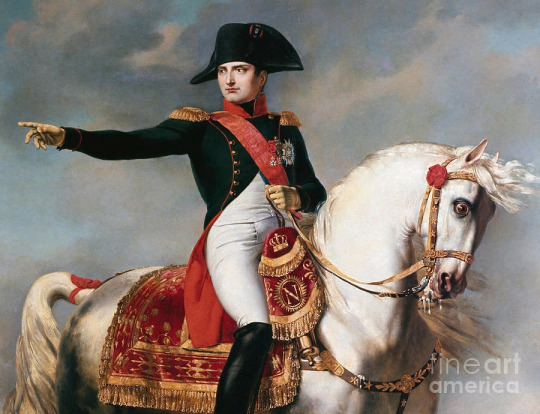
Differences with the United Kingdom meant France faced the War of the Third Coalition by 1805. Napoleon shattered this coalition with victories in the Ulm campaign and at the Battle of Austerlitz, which led to the dissolution of the Holy Roman Empire. In 1806, the Fourth Coalition took up arms against him. Napoleon defeated Prussia at the battles of Jena and Austerlitz , marched the Grande Armée into Eastern Europe, and defeated the Russians in June 1807 at Friedland, forcing the defeated nations of the Fourth Coalition to accept the Treaties of Tilsit. Two years later, the Austrians challenged the French again during the War of the Fifth Coalition, but Napoleon solidified his grip over Europe after triumphing at the Battle of Wagram.
Hoping to extend the Continental System, his embargo against Britain, Napoleon invaded the Iberian Peninsula and declared his brother Joseph the King of Spain in 1808. The Spanish and the Portuguese revolted in the Peninsular War aided by a British army, culminating in defeat for Napoleon's marshals. Napoleon launched an invasion of Russia in the summer of 1812. The resulting campaign witnessed the catastrophic retreat of Napoleon's Grande Armée. In 1813, Prussia and Austria joined Russian forces in a Sixth Coalition against France, resulting in a large coalition army defeating Napoleon at the Battle of Leipzig. The coalition invaded France and captured Paris, forcing Napoleon to abdicate in April 1814. He was exiled to the island of Elba, between Corsica and Italy. In France, the Bourbons were restored to power.
Napoleon escaped in February 1815 and took control of France. The Allies responded by forming a Seventh Coalition, which defeated Napoleon at the Battle of Waterloo in June 1815. The British exiled him to the remote island of Saint Helena in the Atlantic, where he died in 1821 at the age of 51.
Napoleon had a lasting impact on the world, bringing modernizing reforms to France and Western Europe and stimulating the development of nation states. He also sold the Louisiana Territory to the United States in 1803, doubling the size of the United States. However, his exploitation of conquered territories, mixed record on civil rights, reintroduction of slavery in France's colonies, and repression of the Haitian Revolution are controversial and adversely affect his reputation.
and that's all I hope you enjoyed it thank you
#napoleon#history#europe#napoleonic era#napoleonic wars#napoleon bonaparte#france#paris#french empire
3 notes
·
View notes